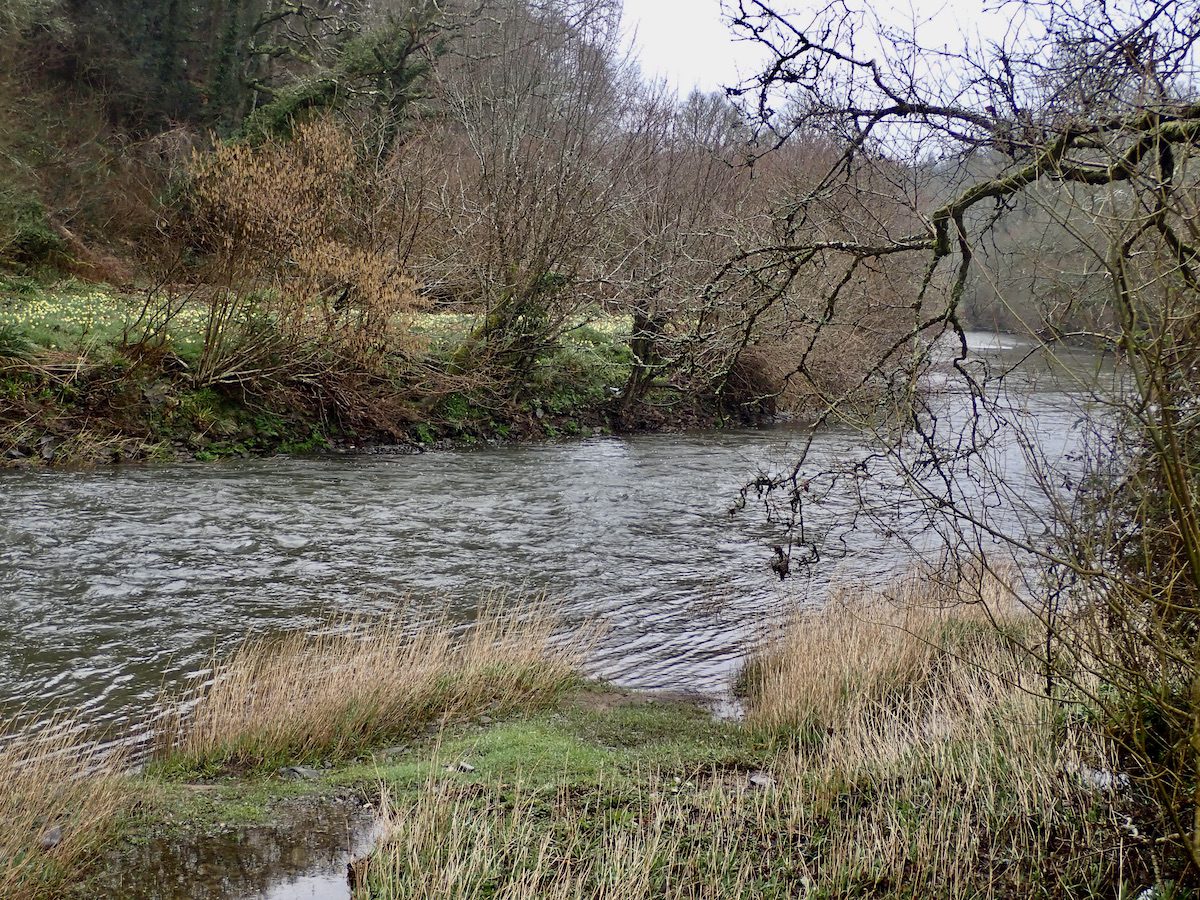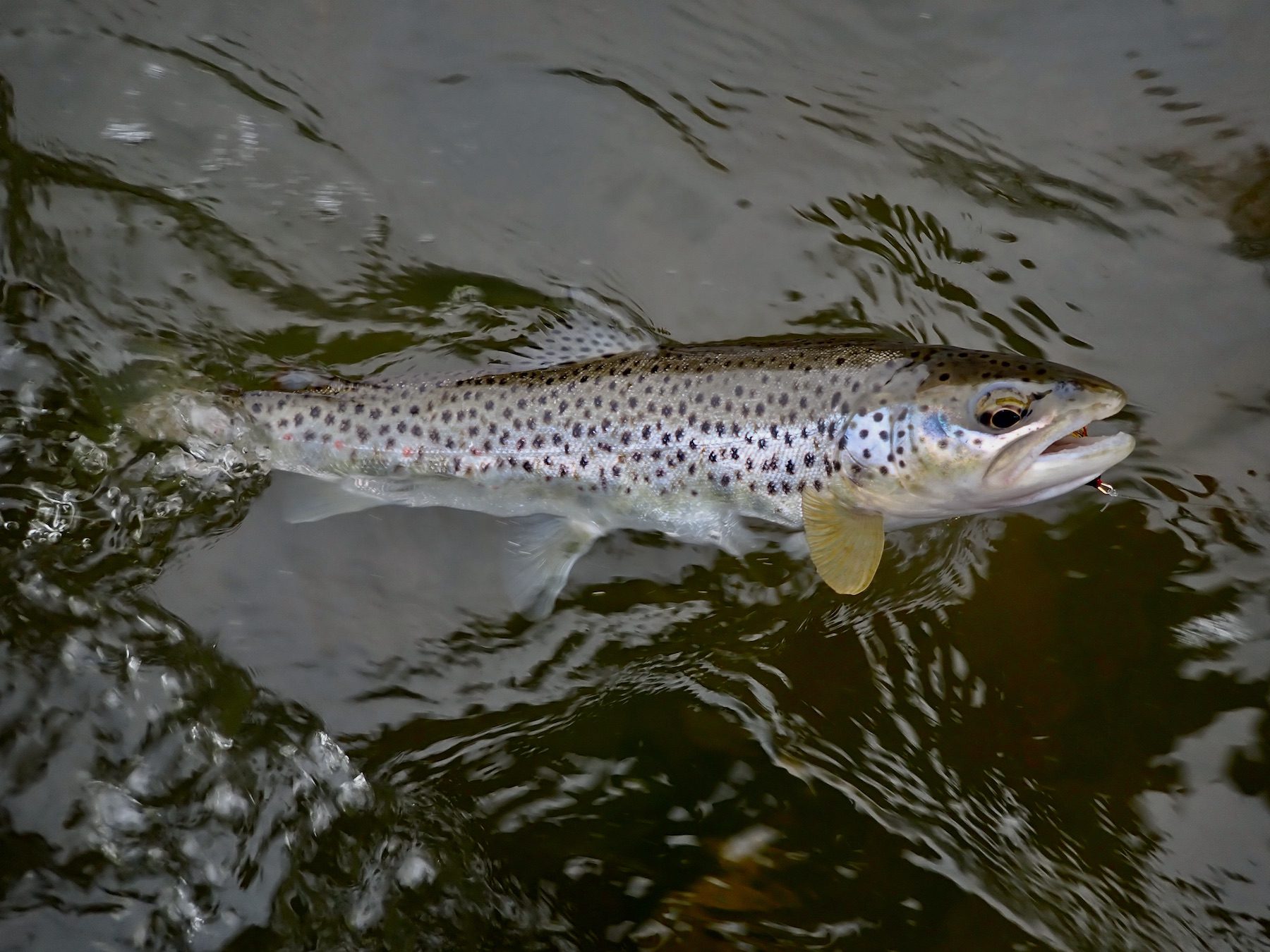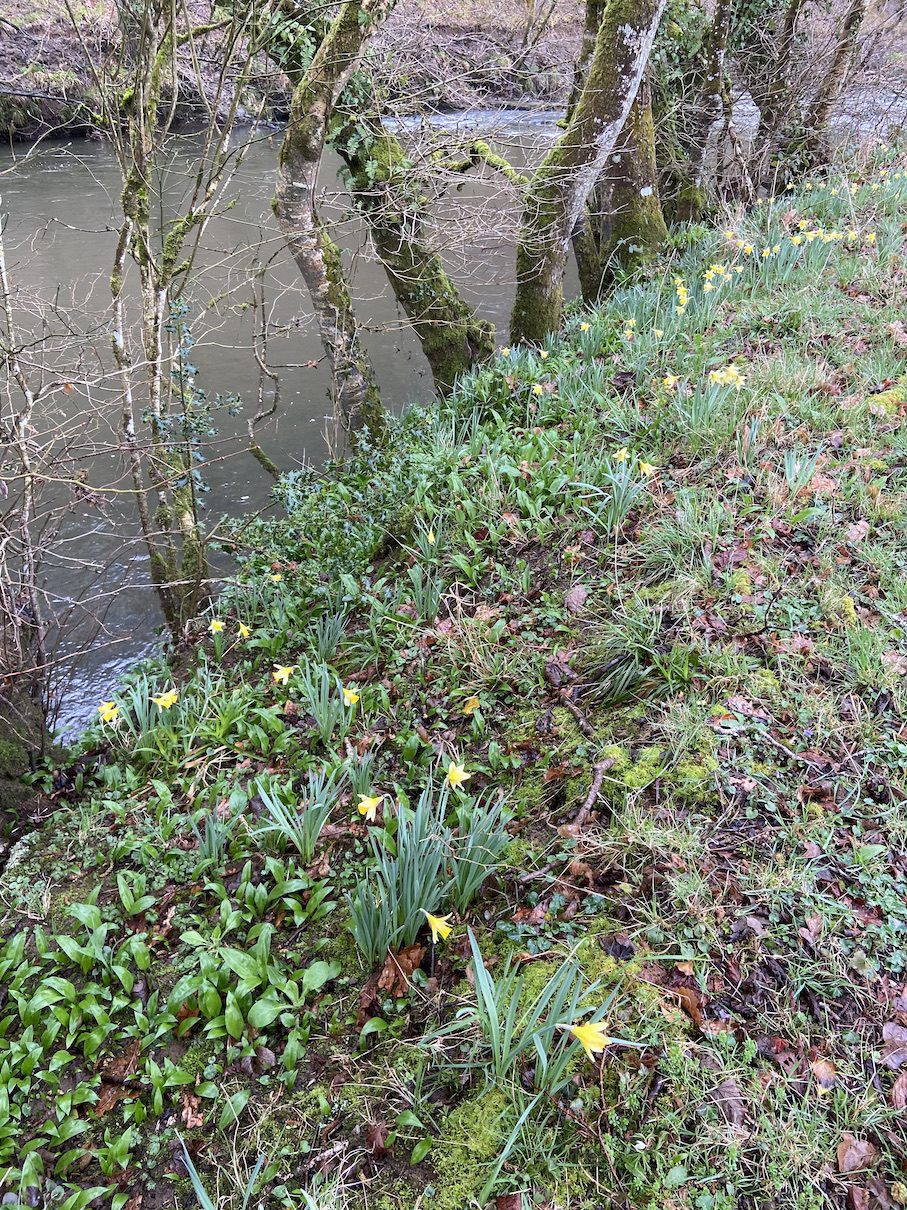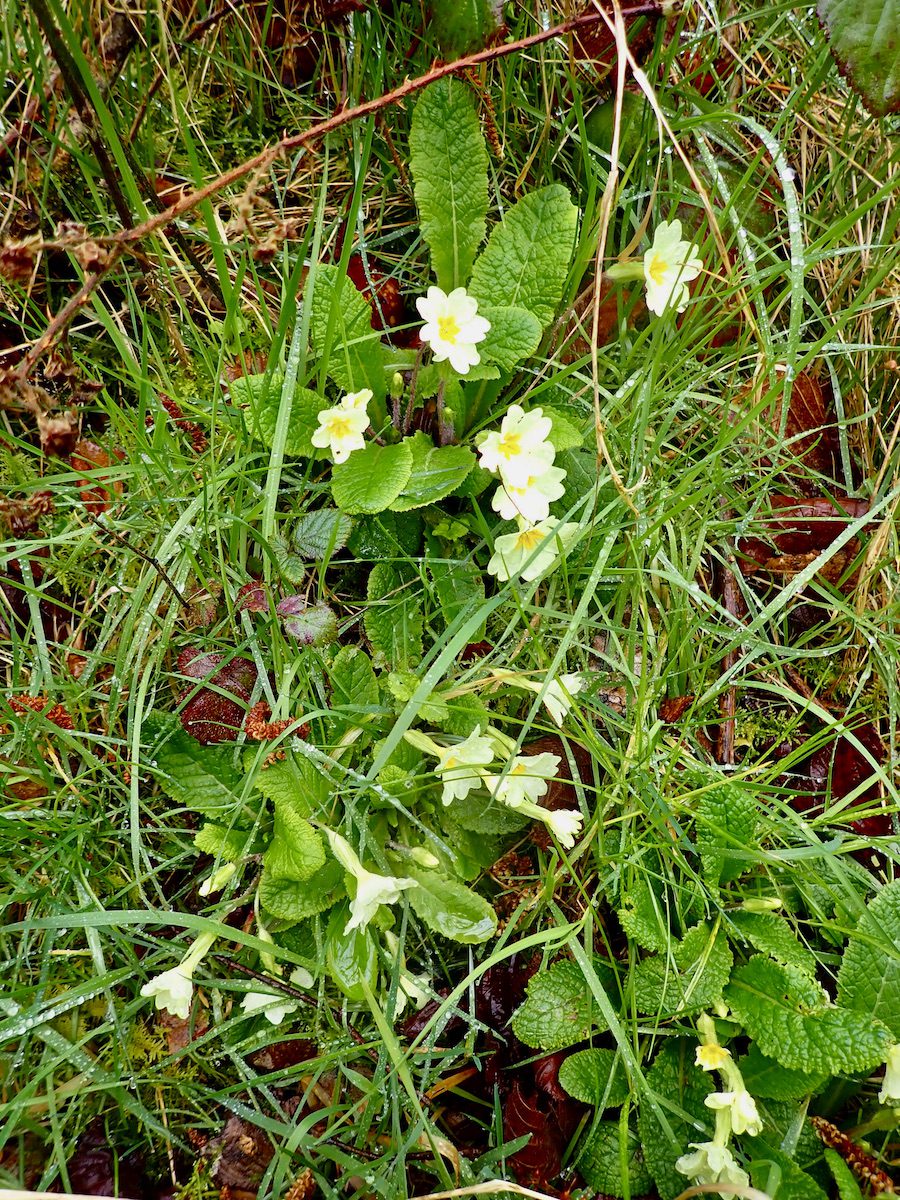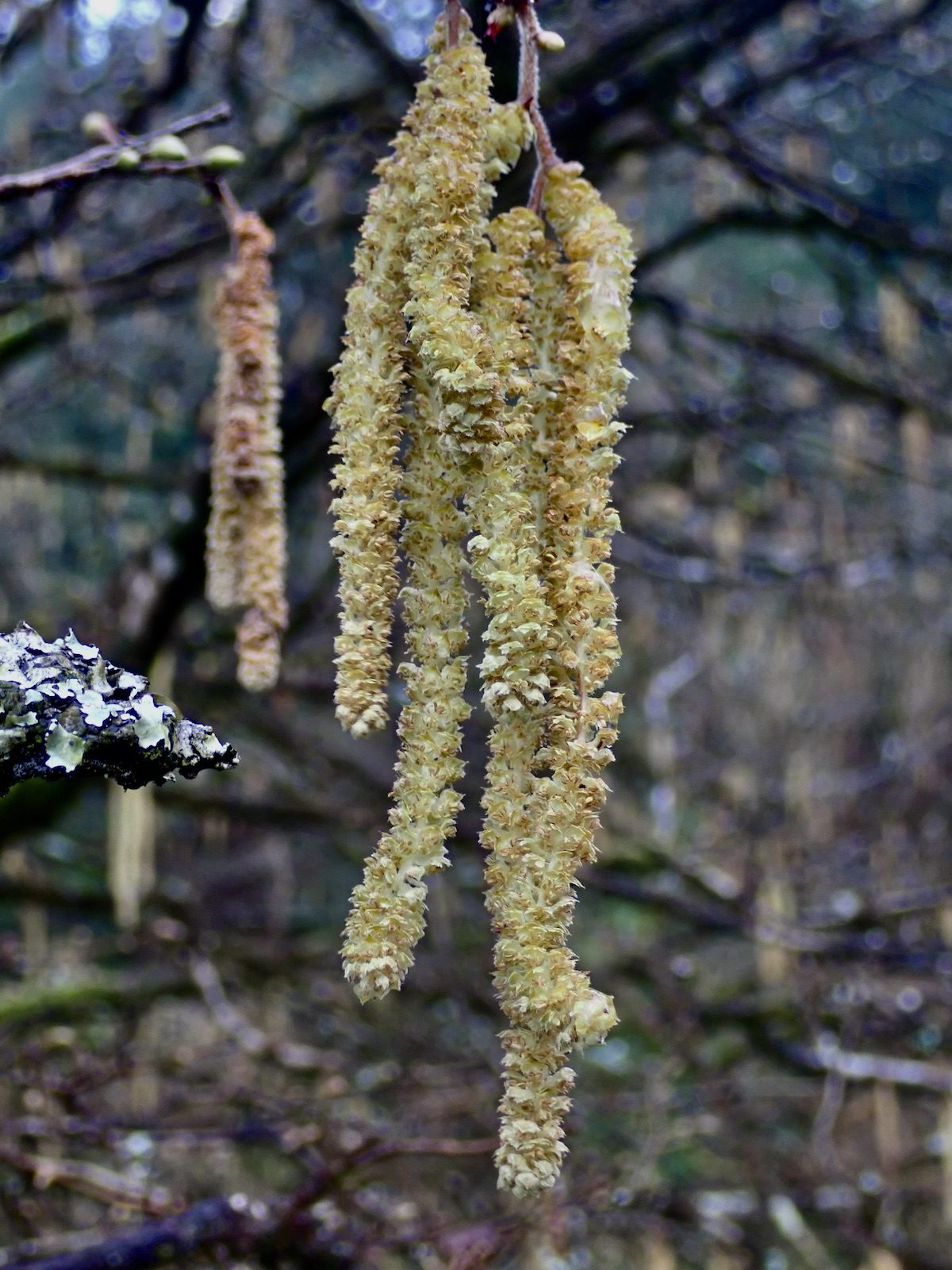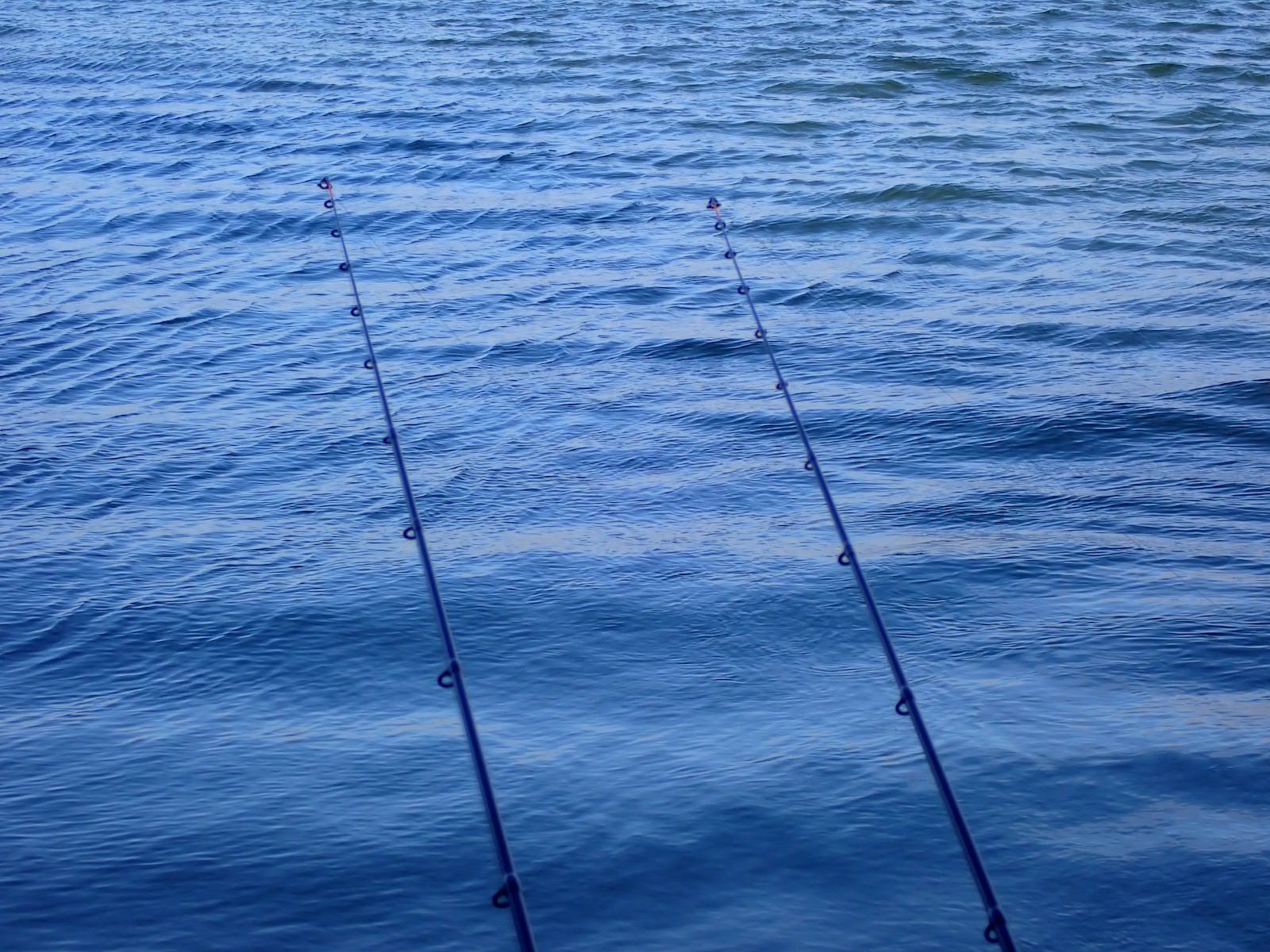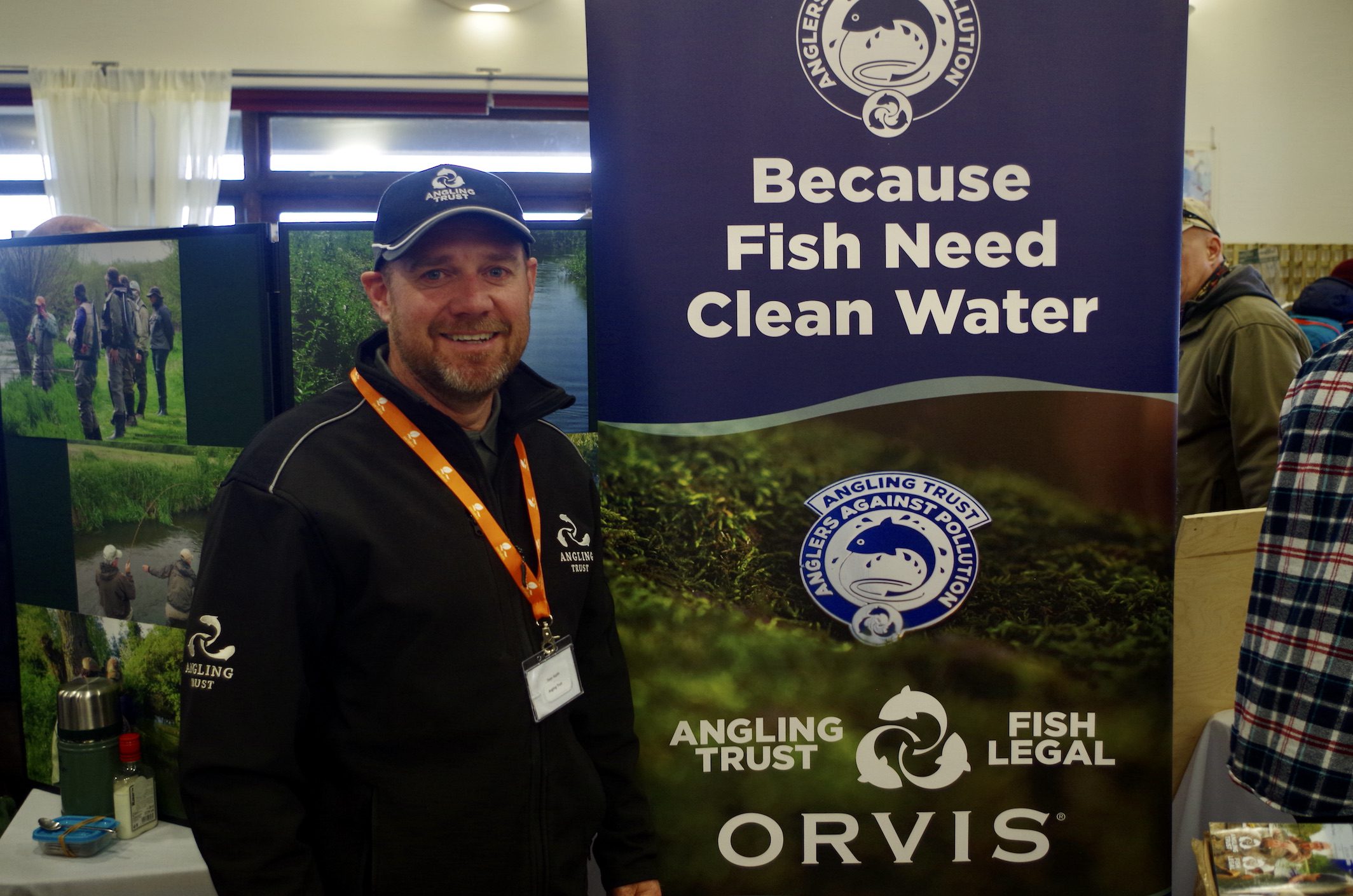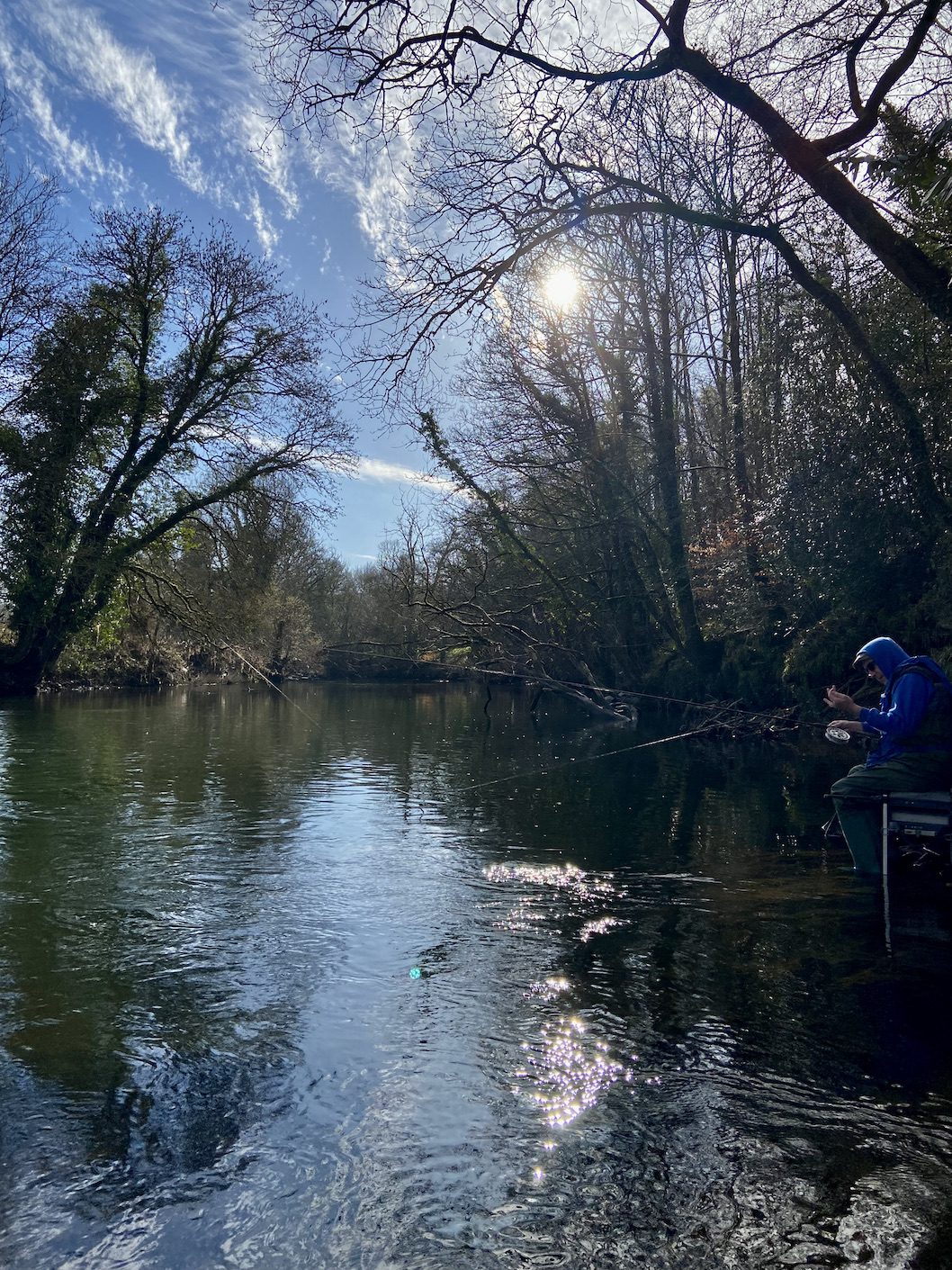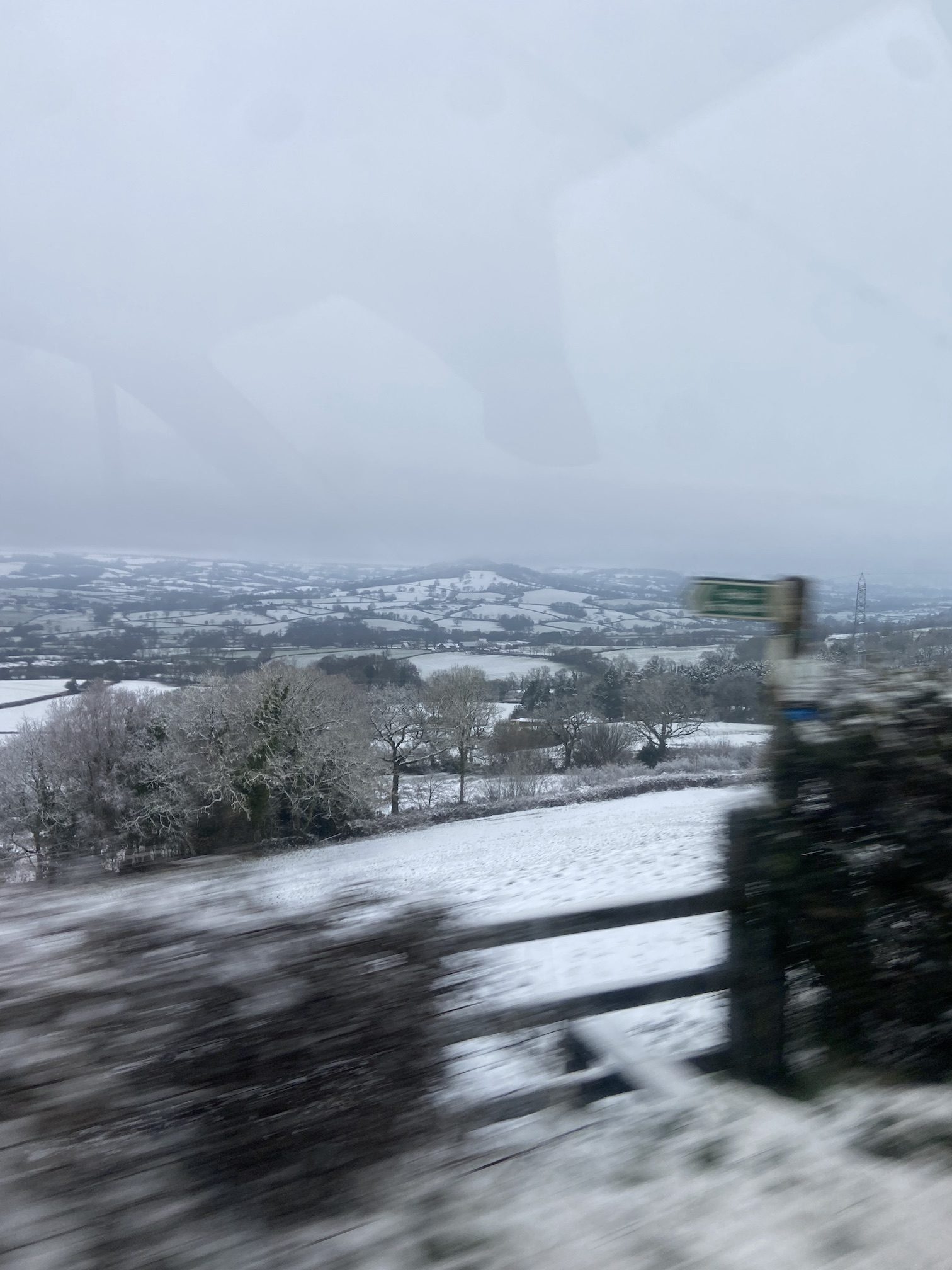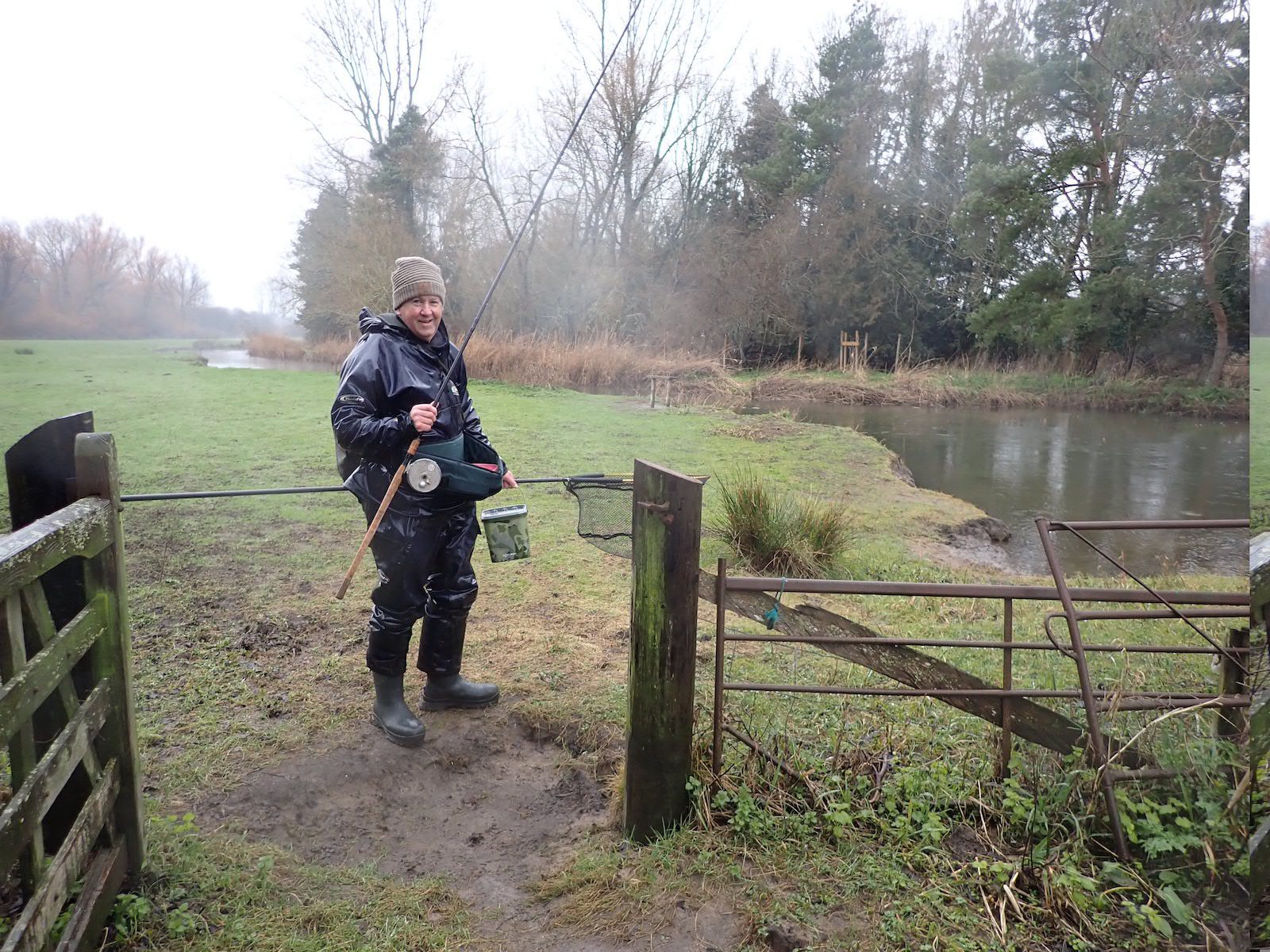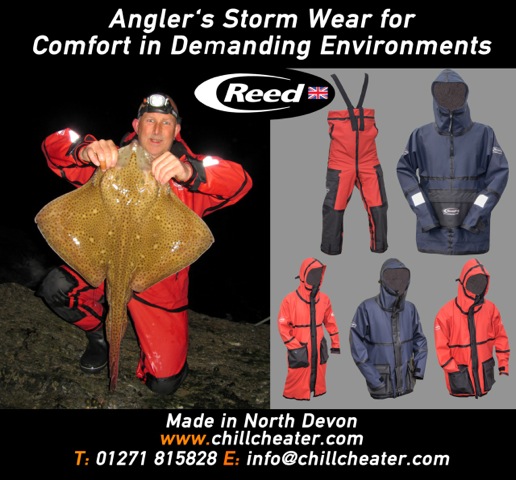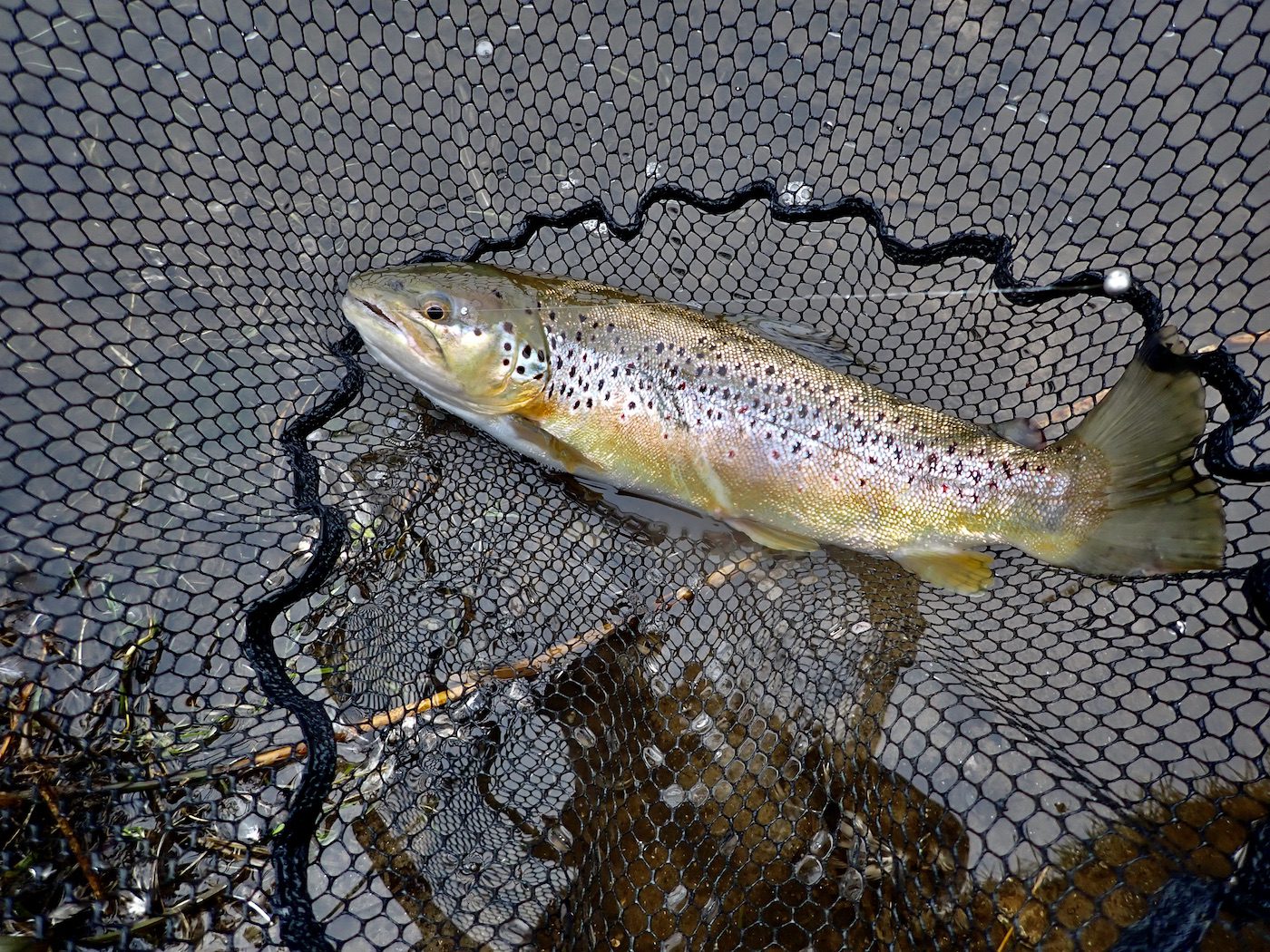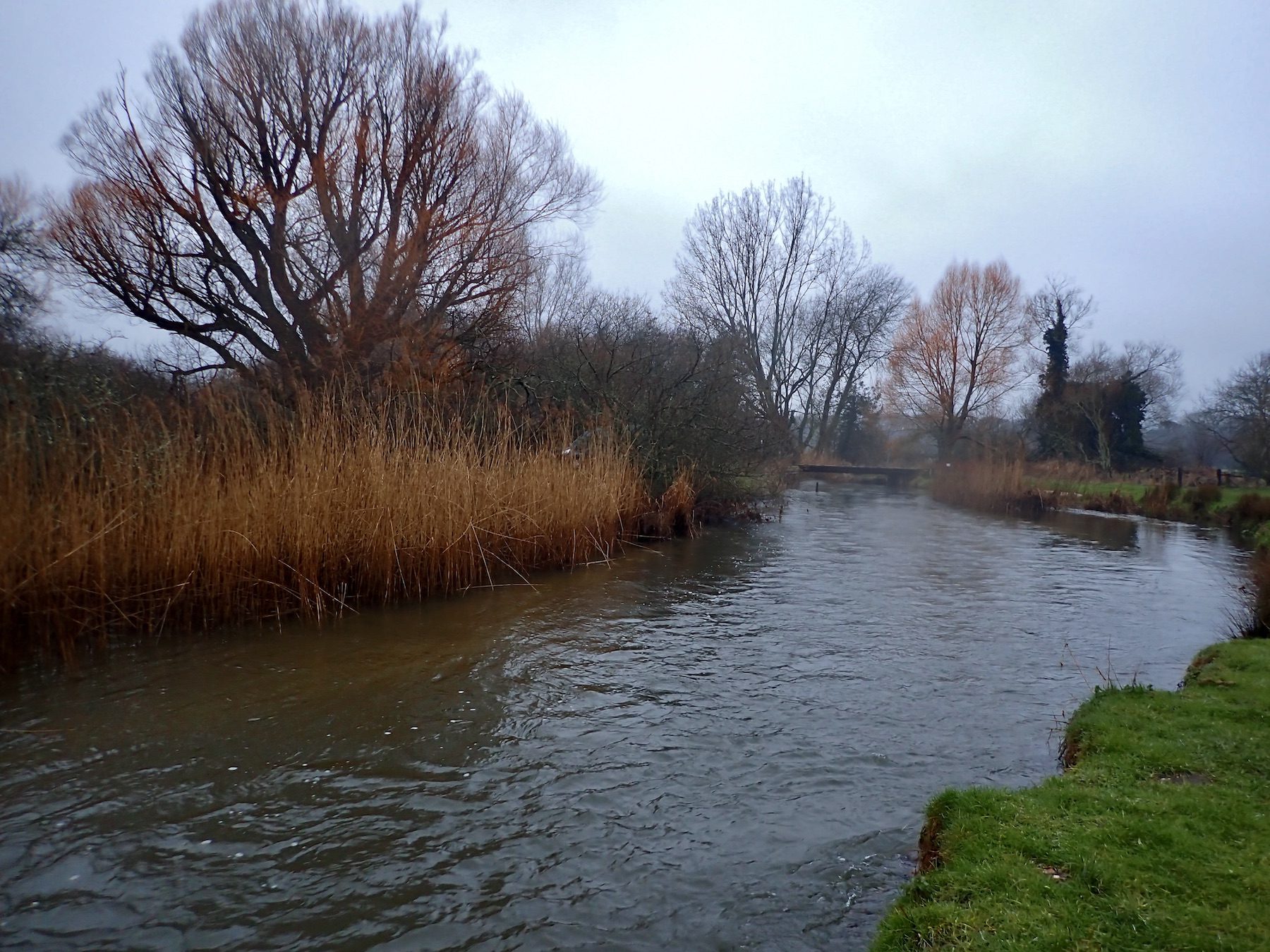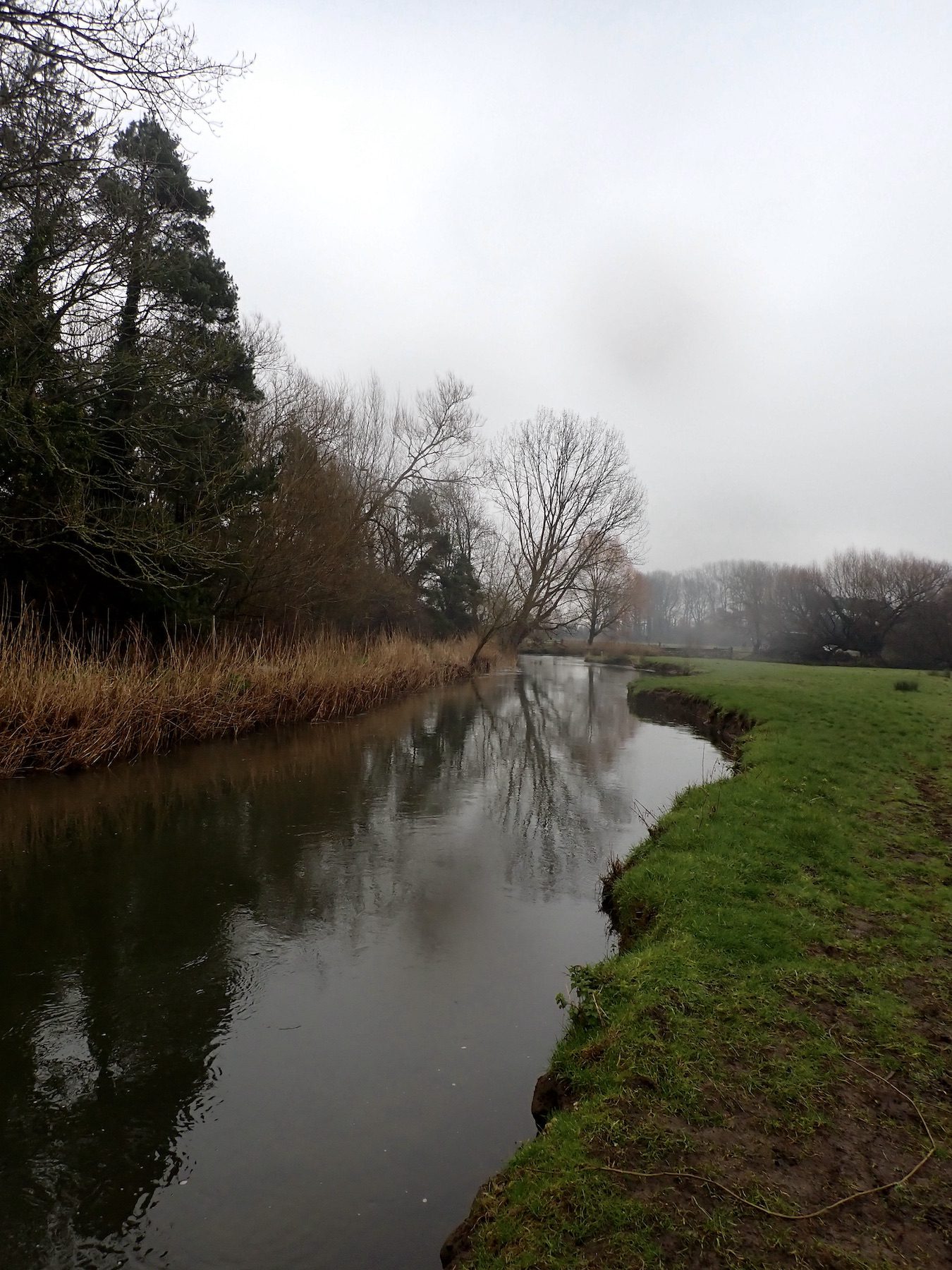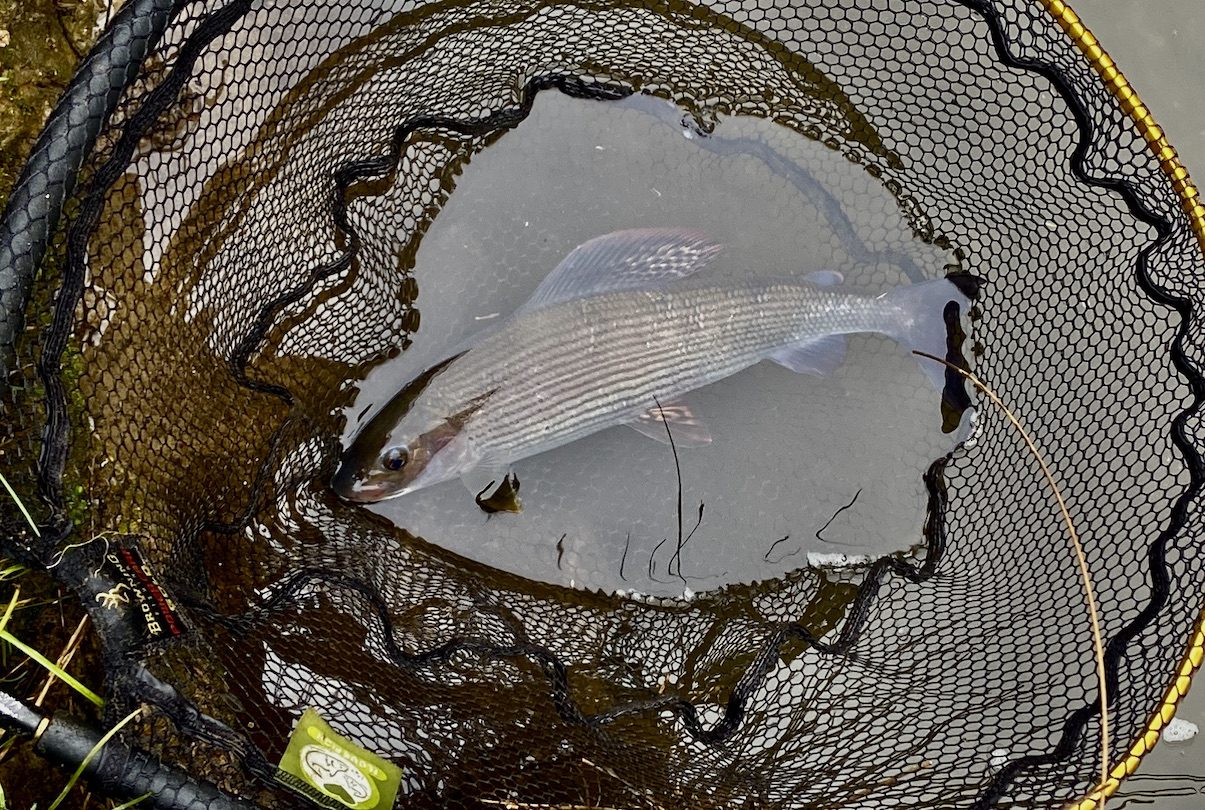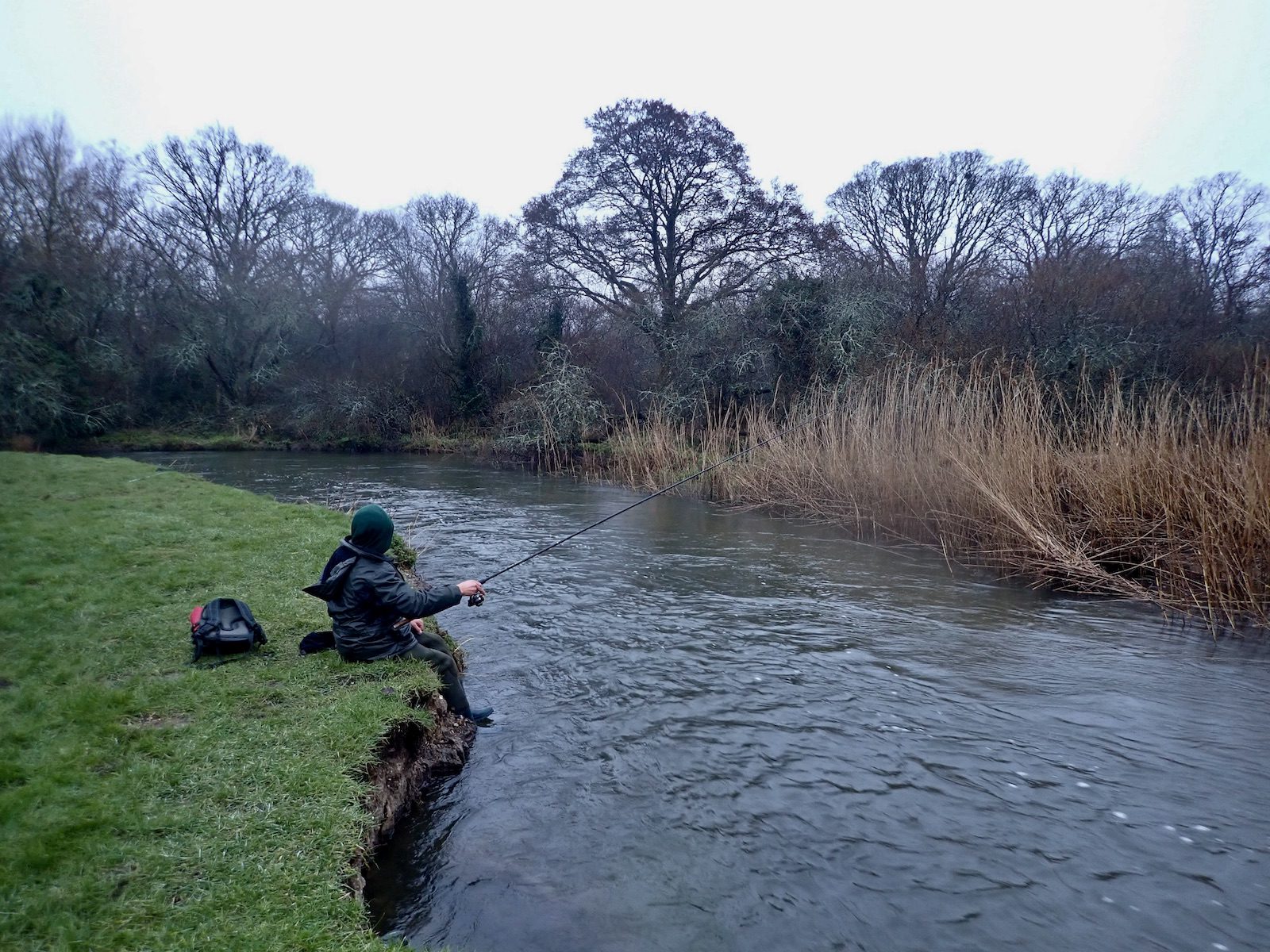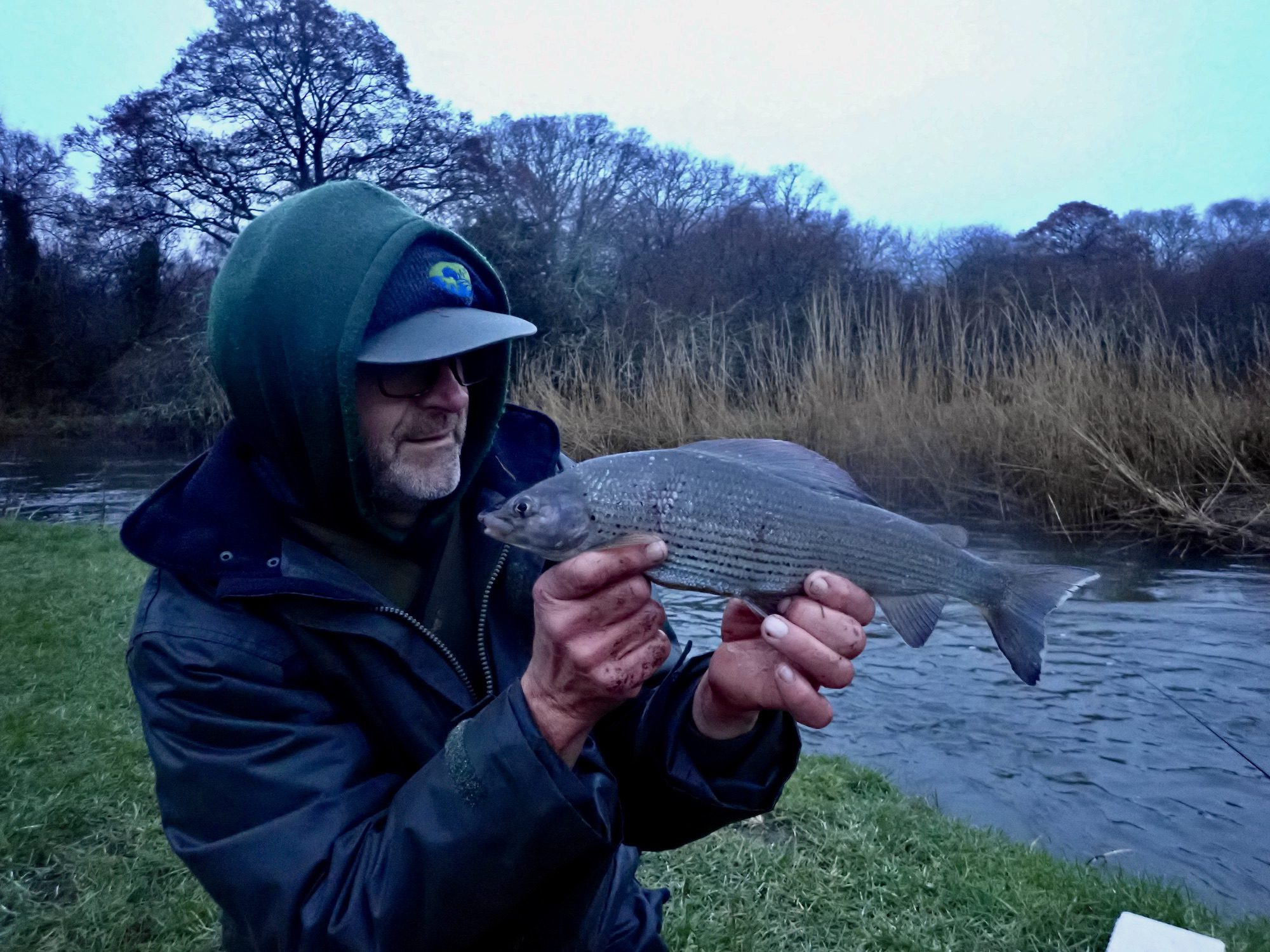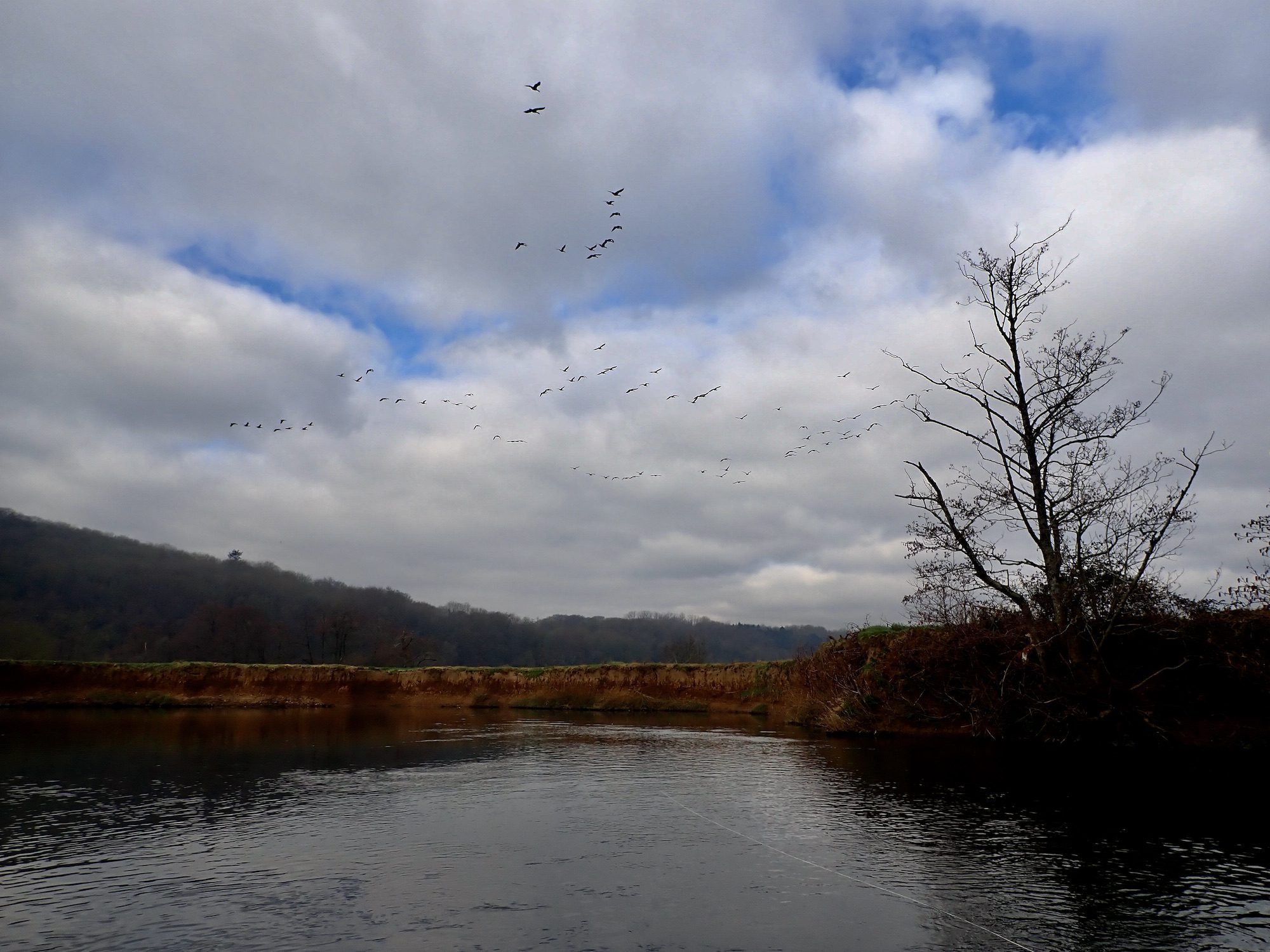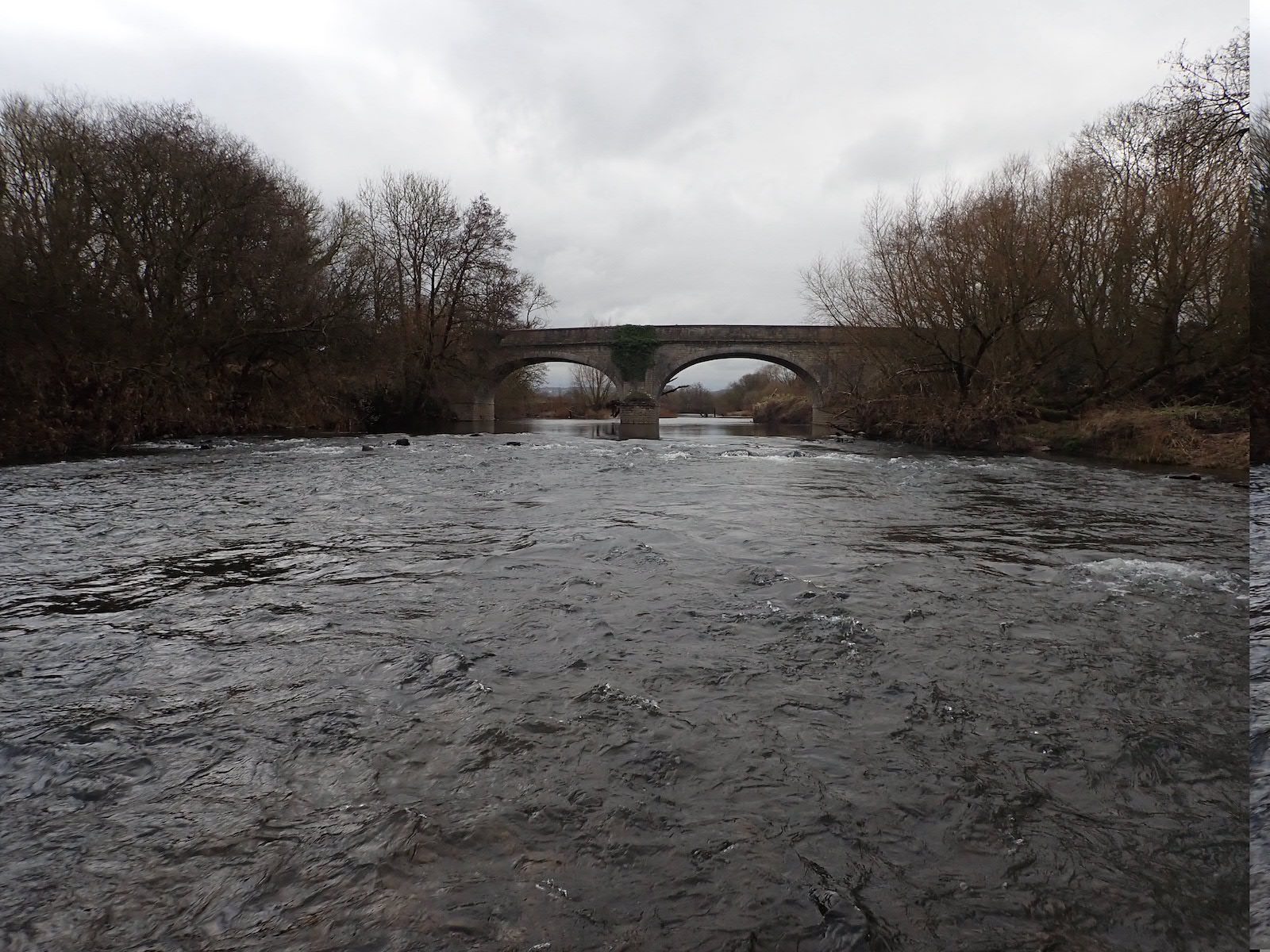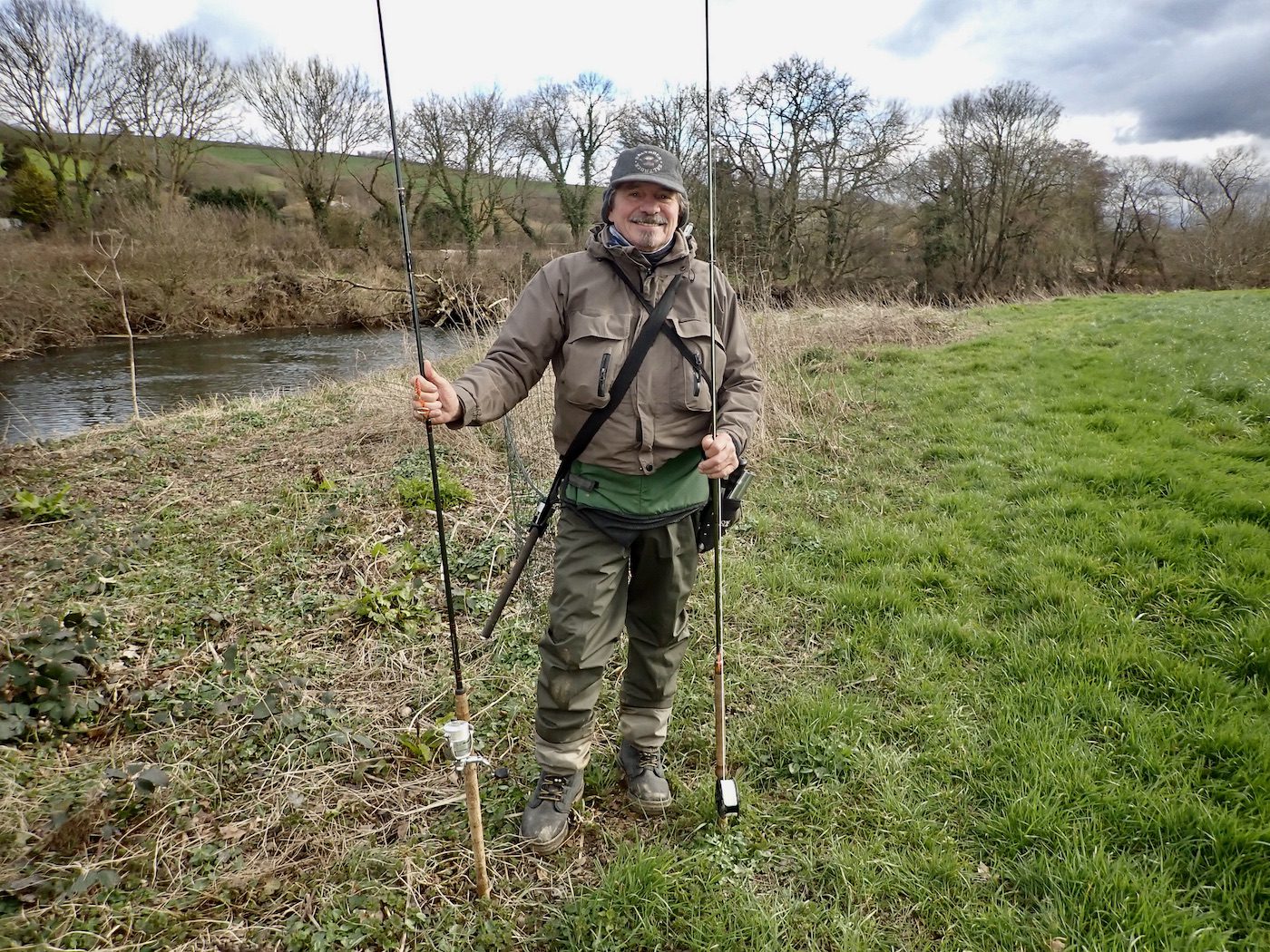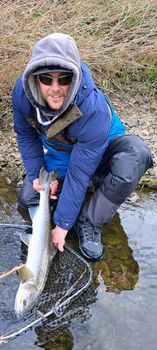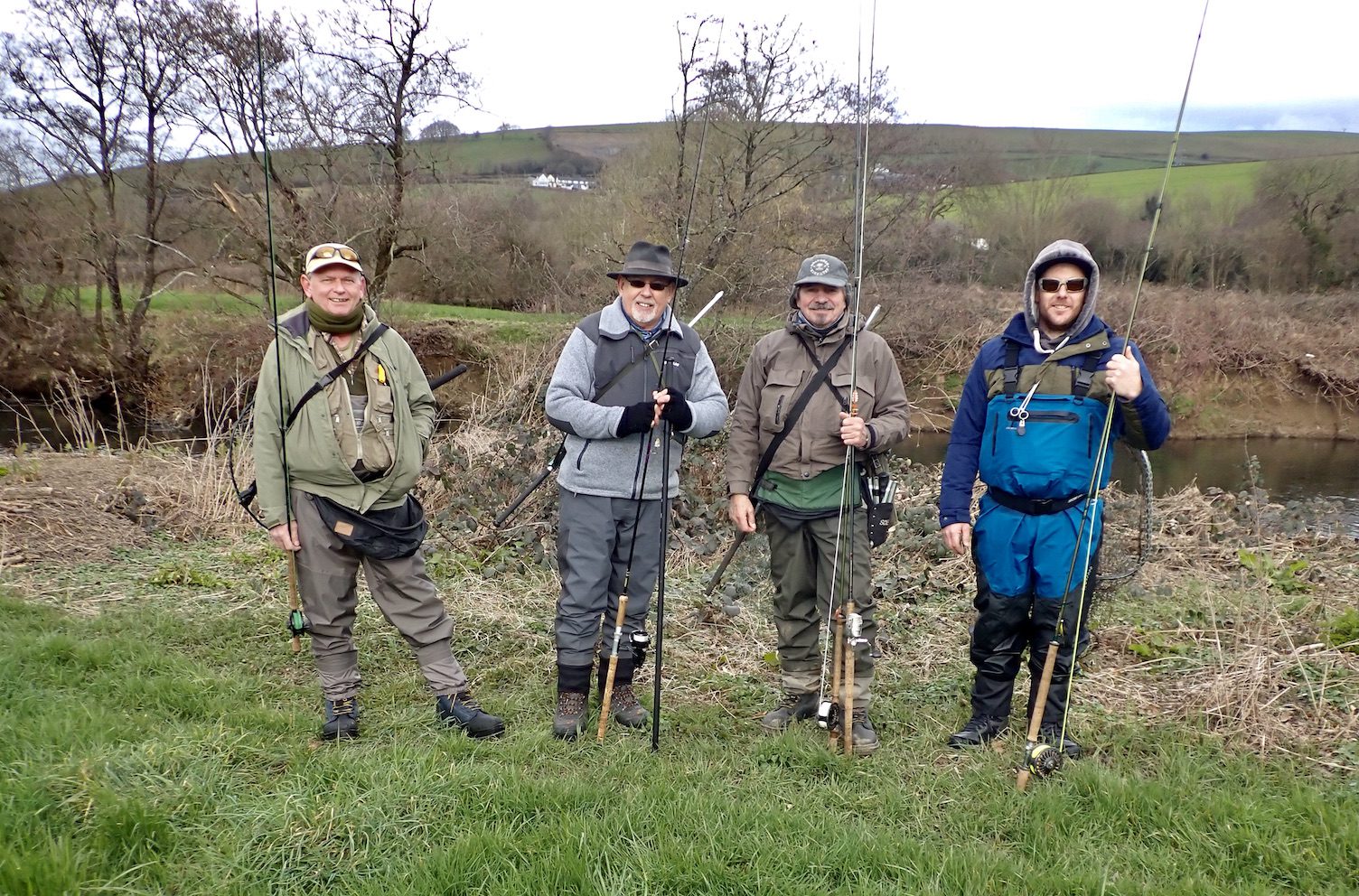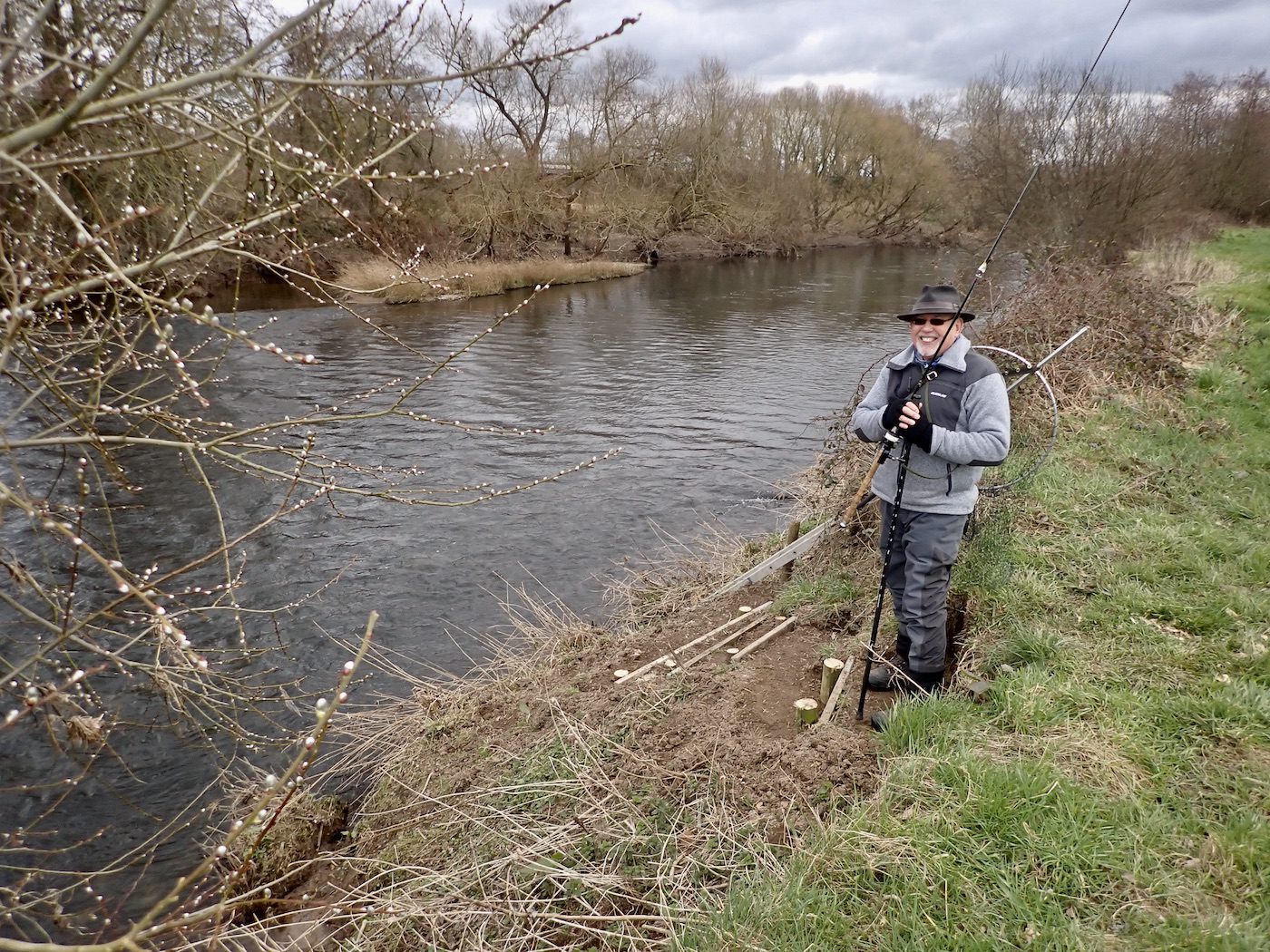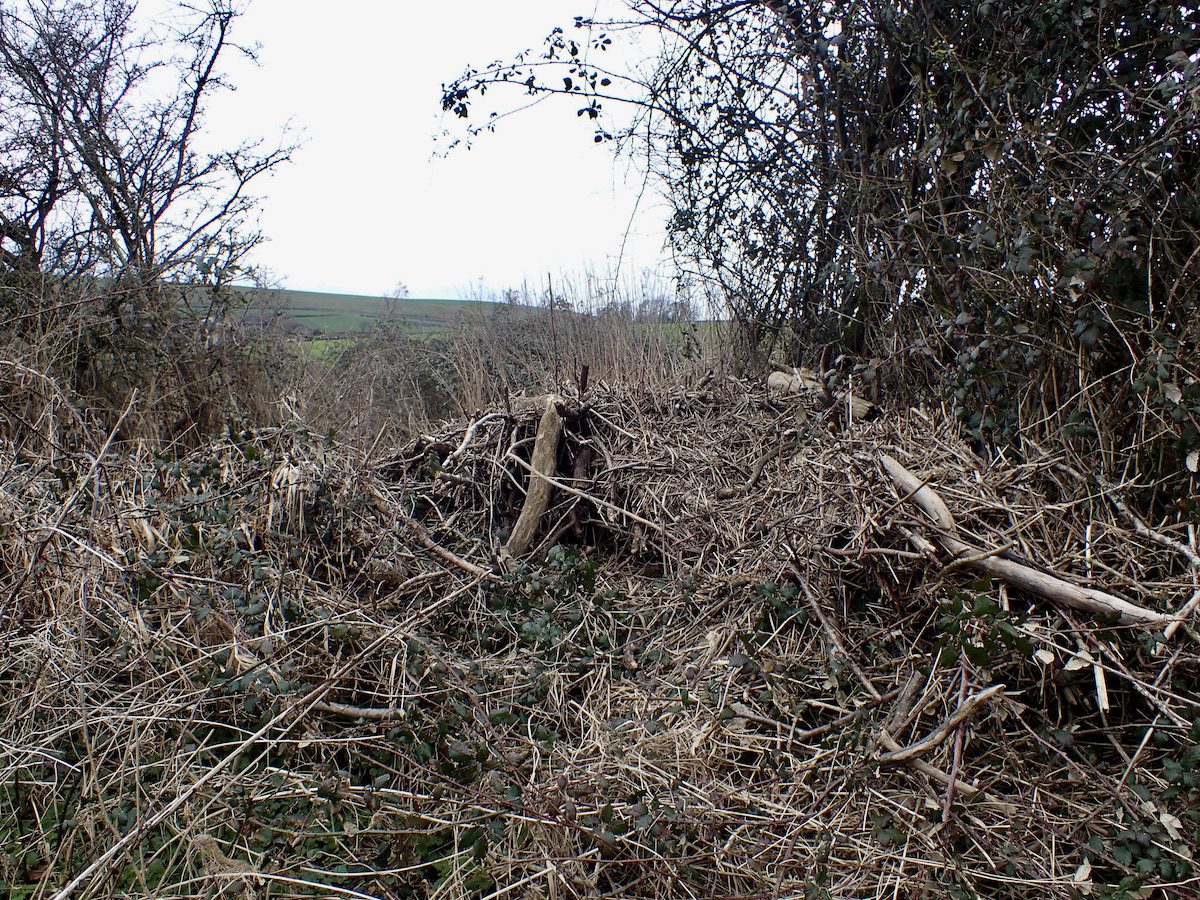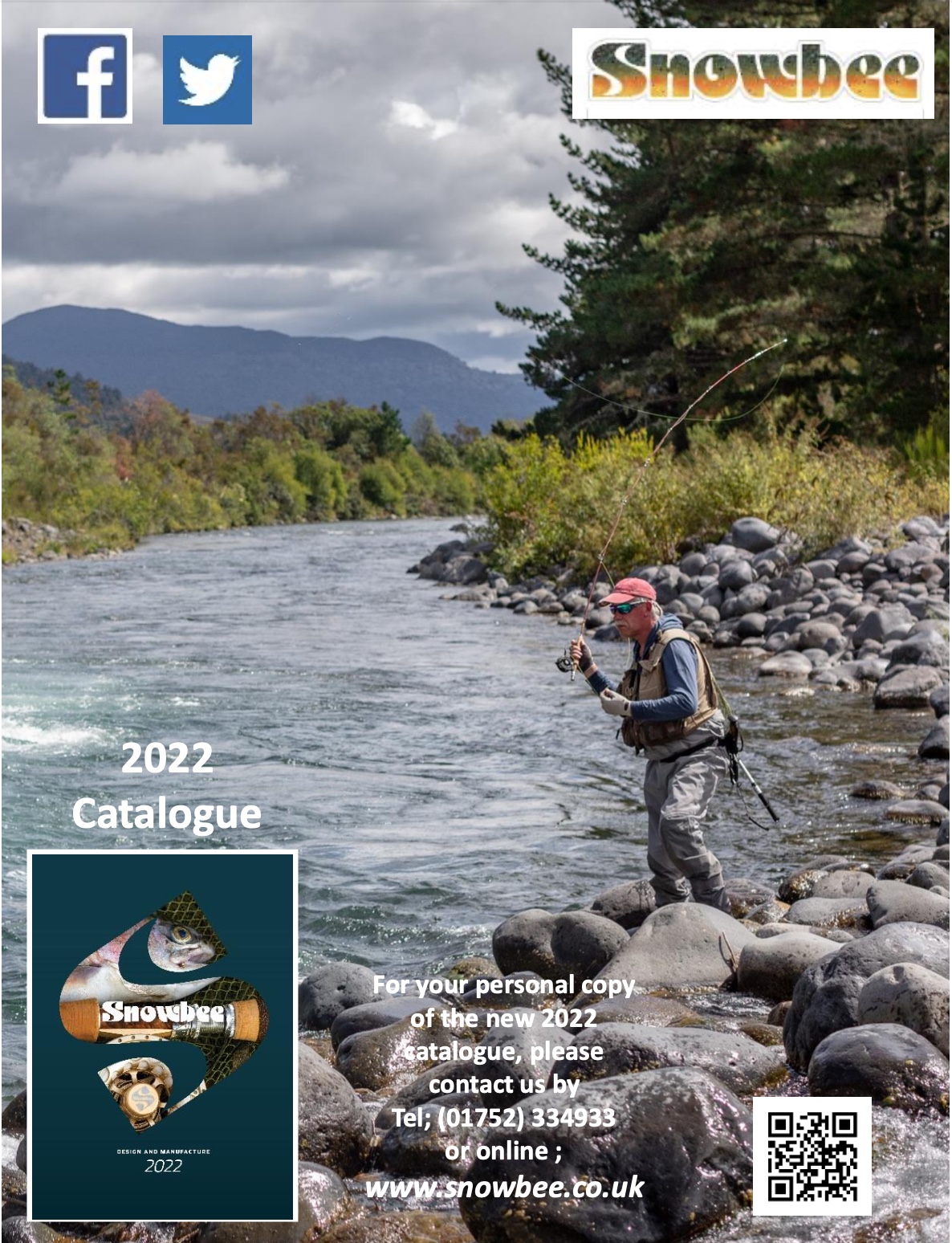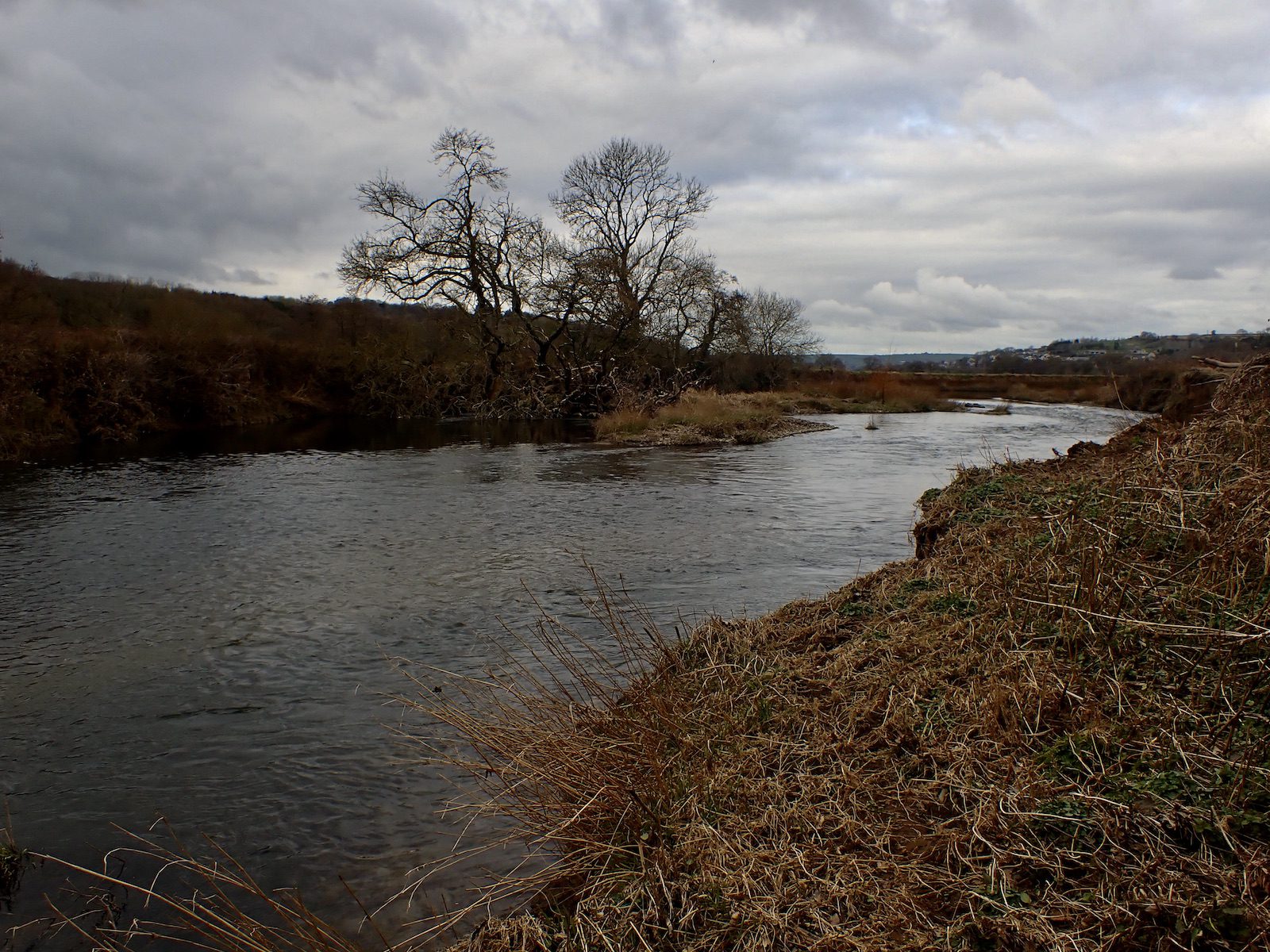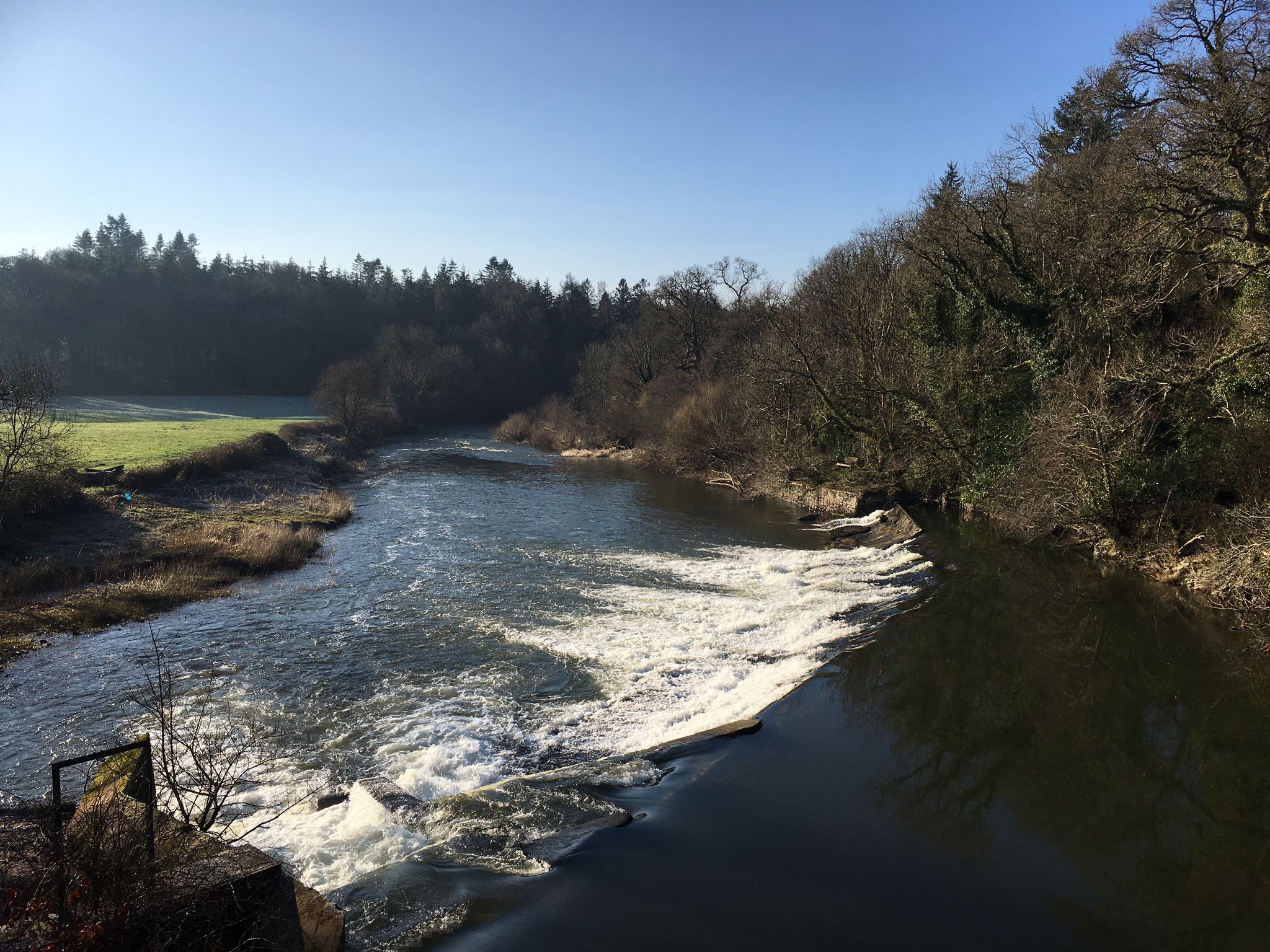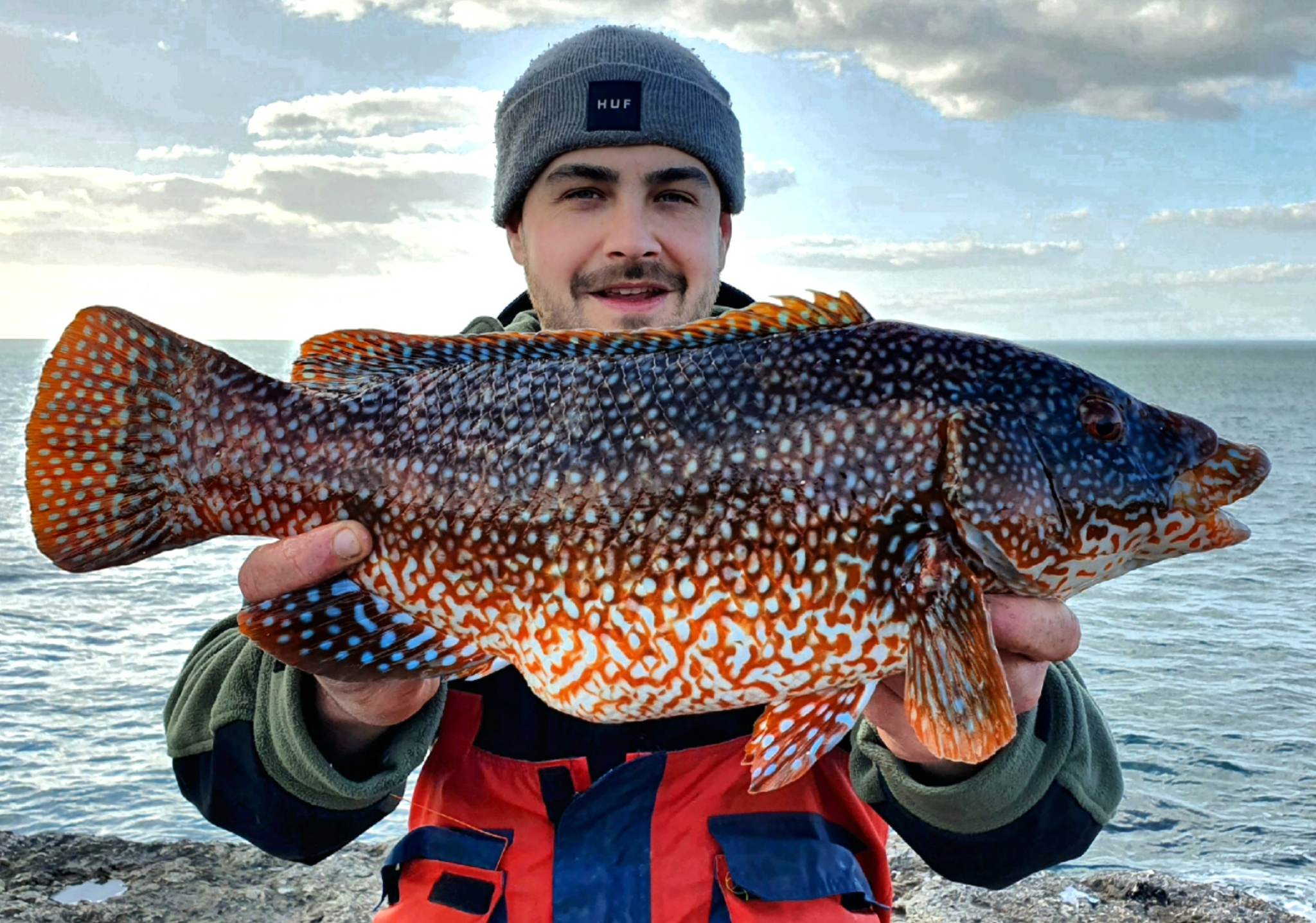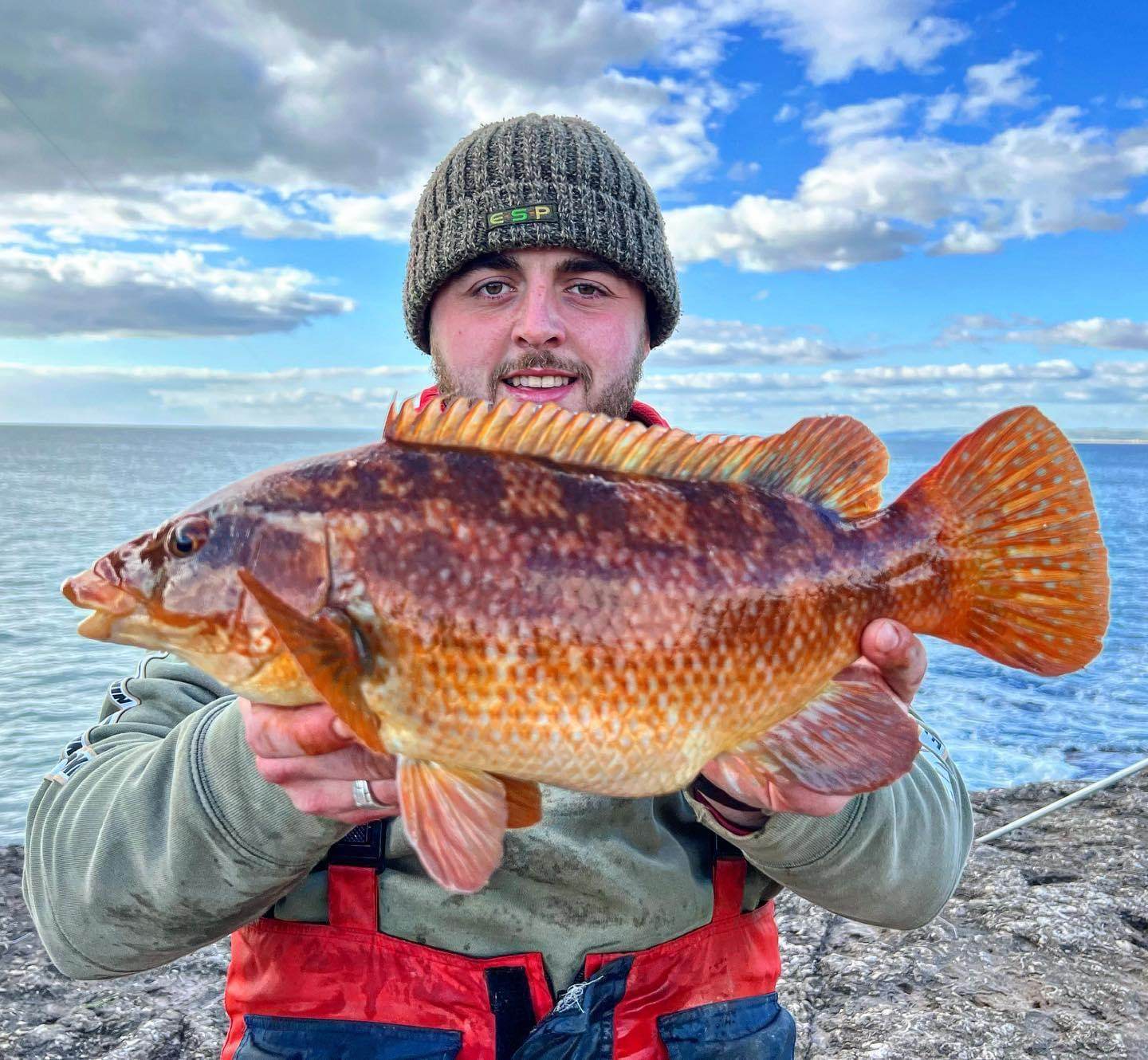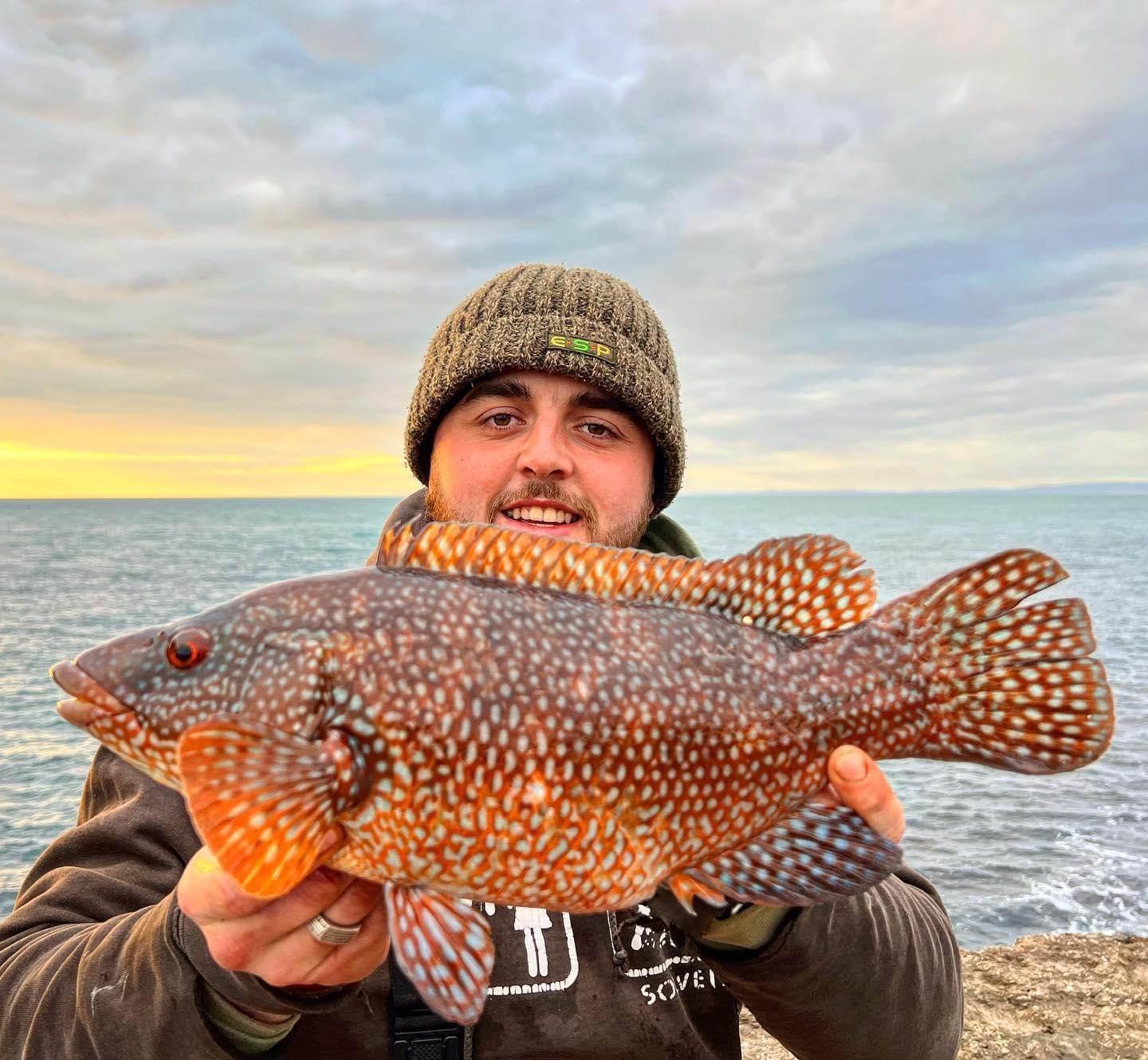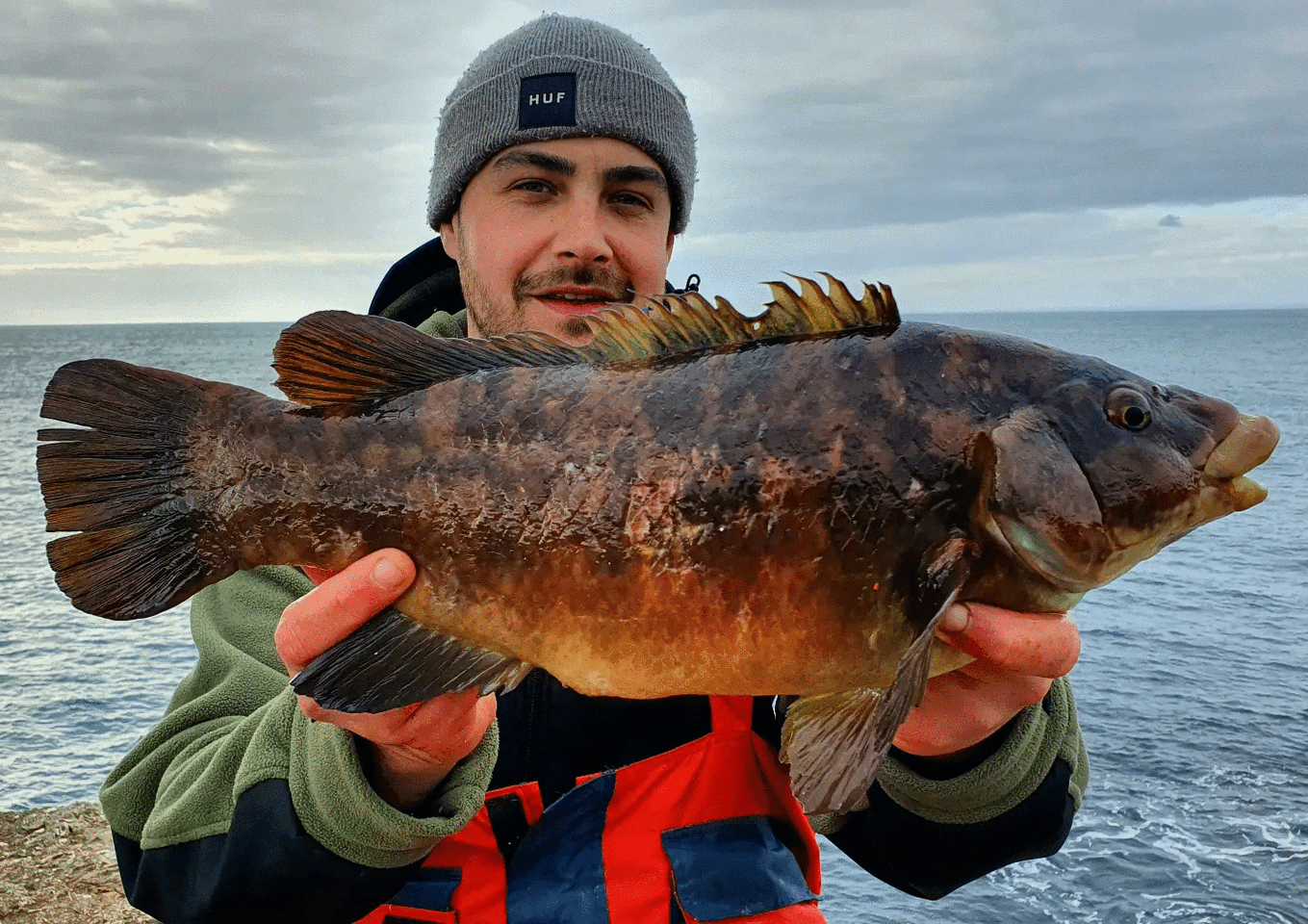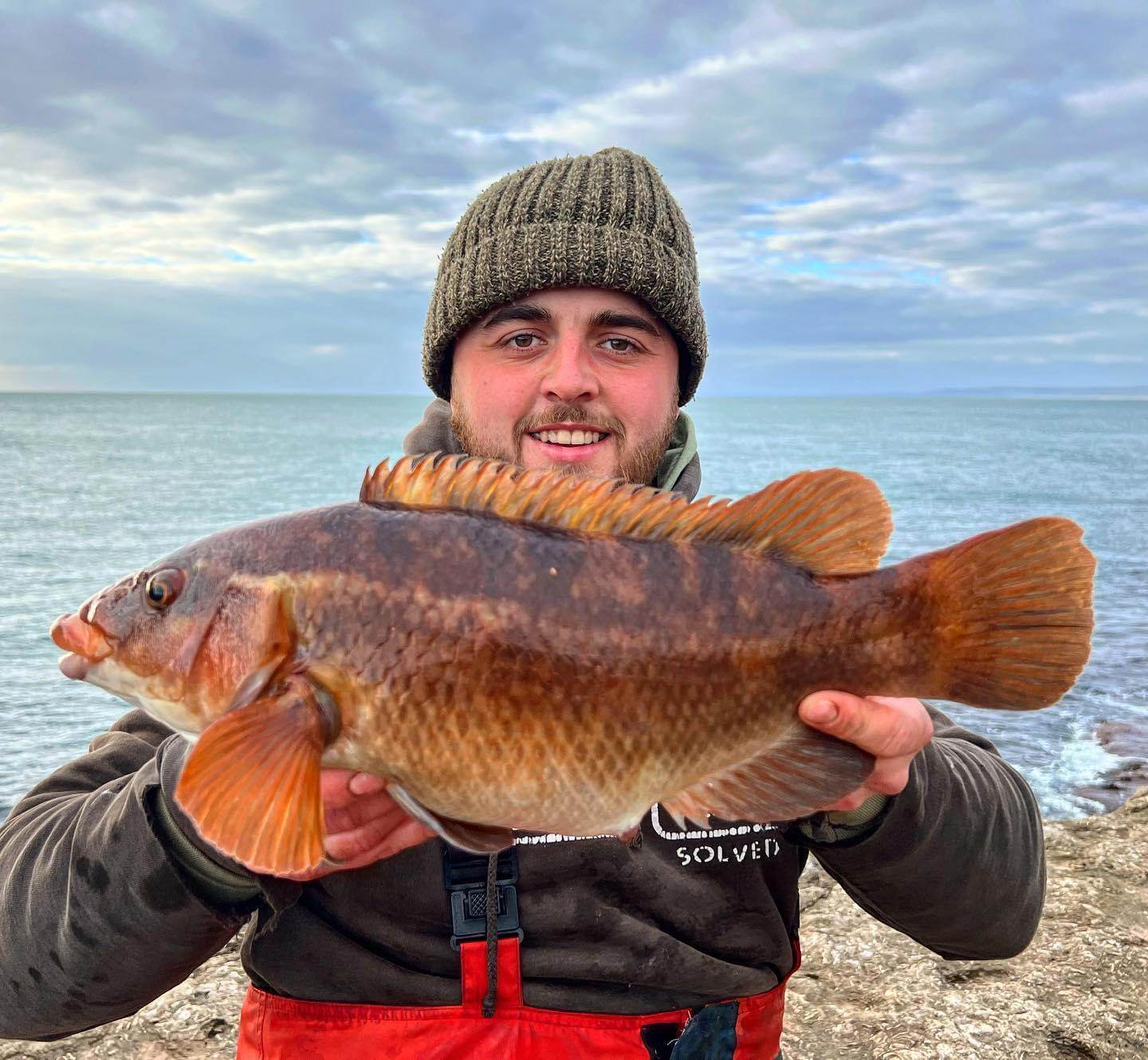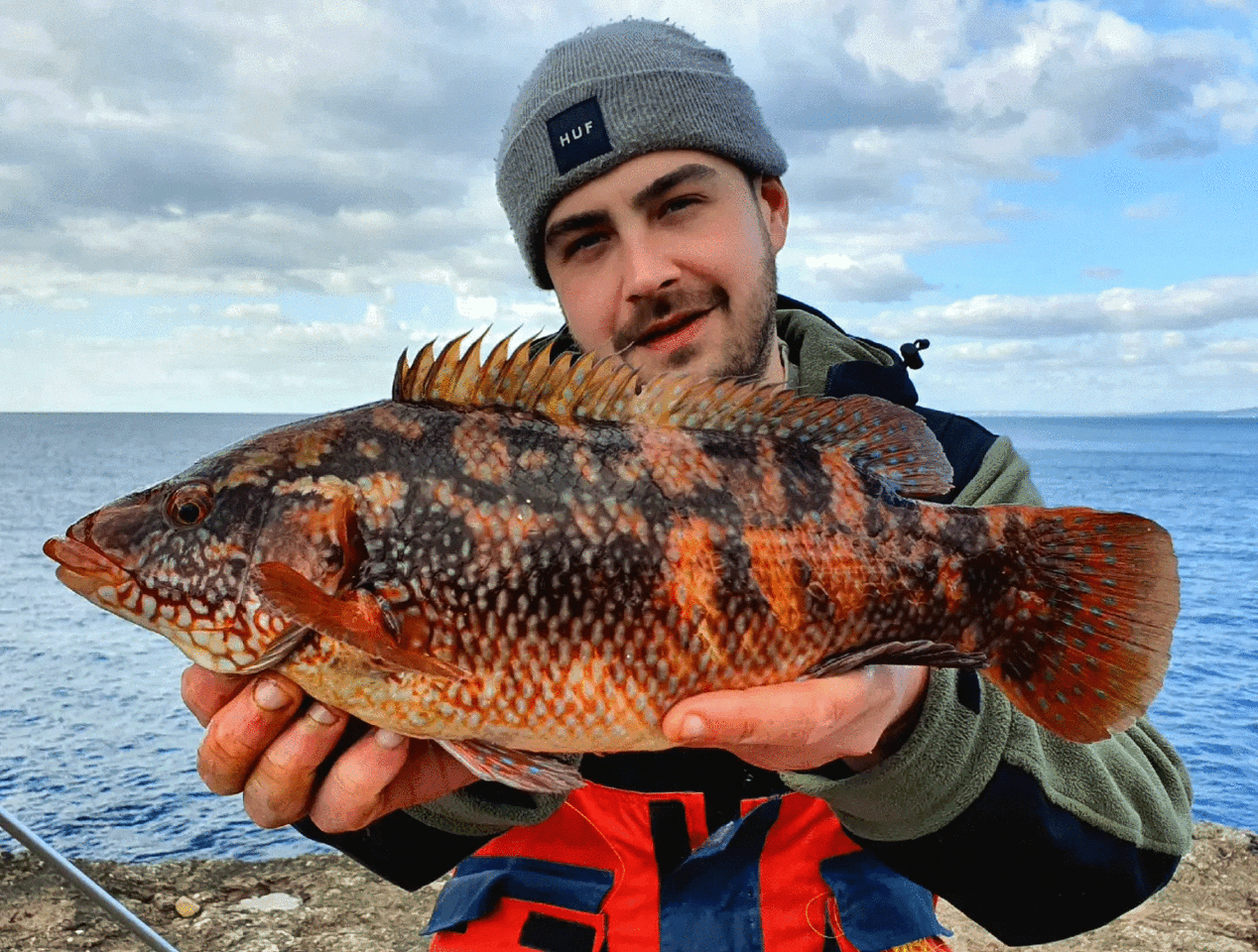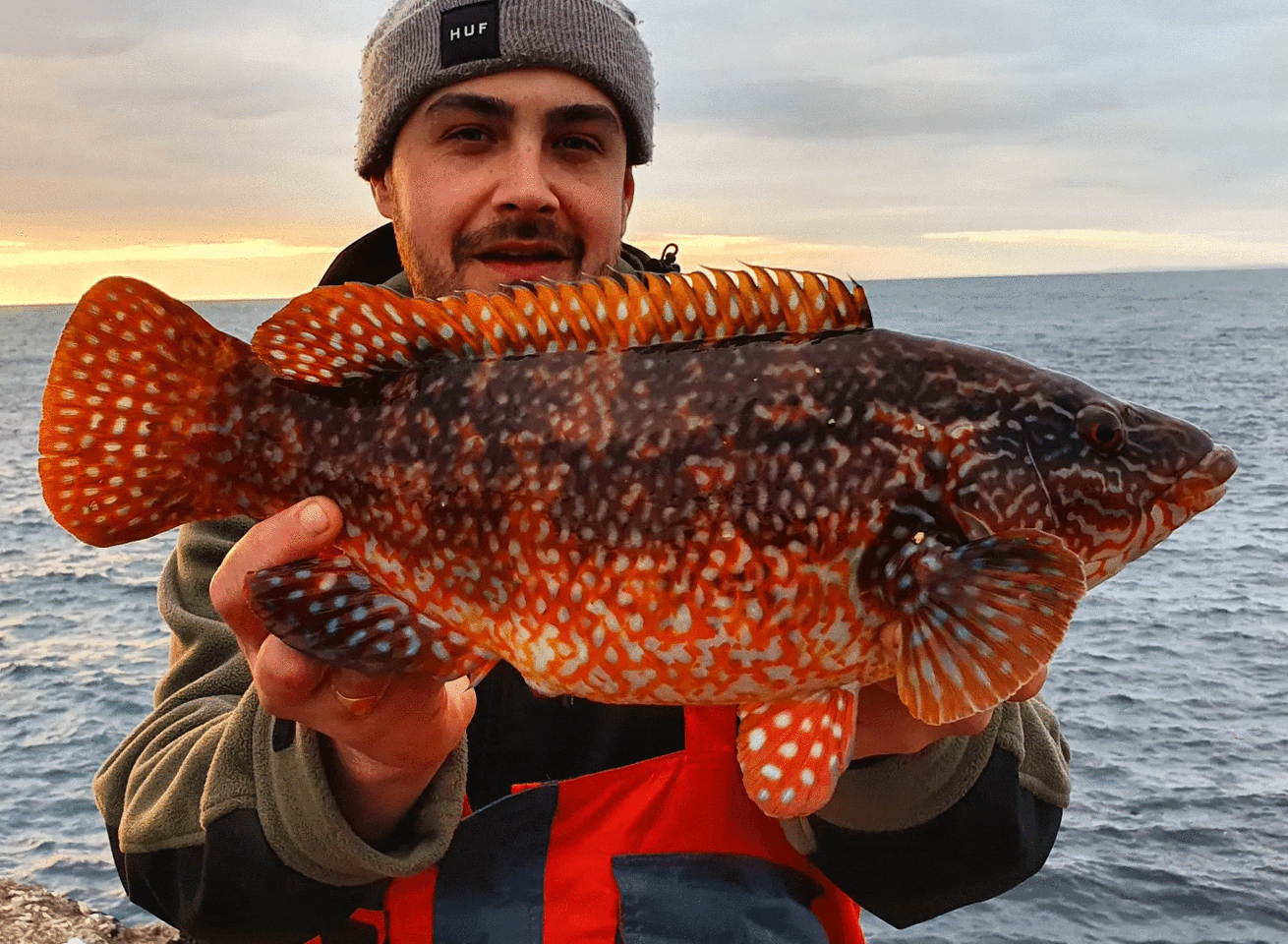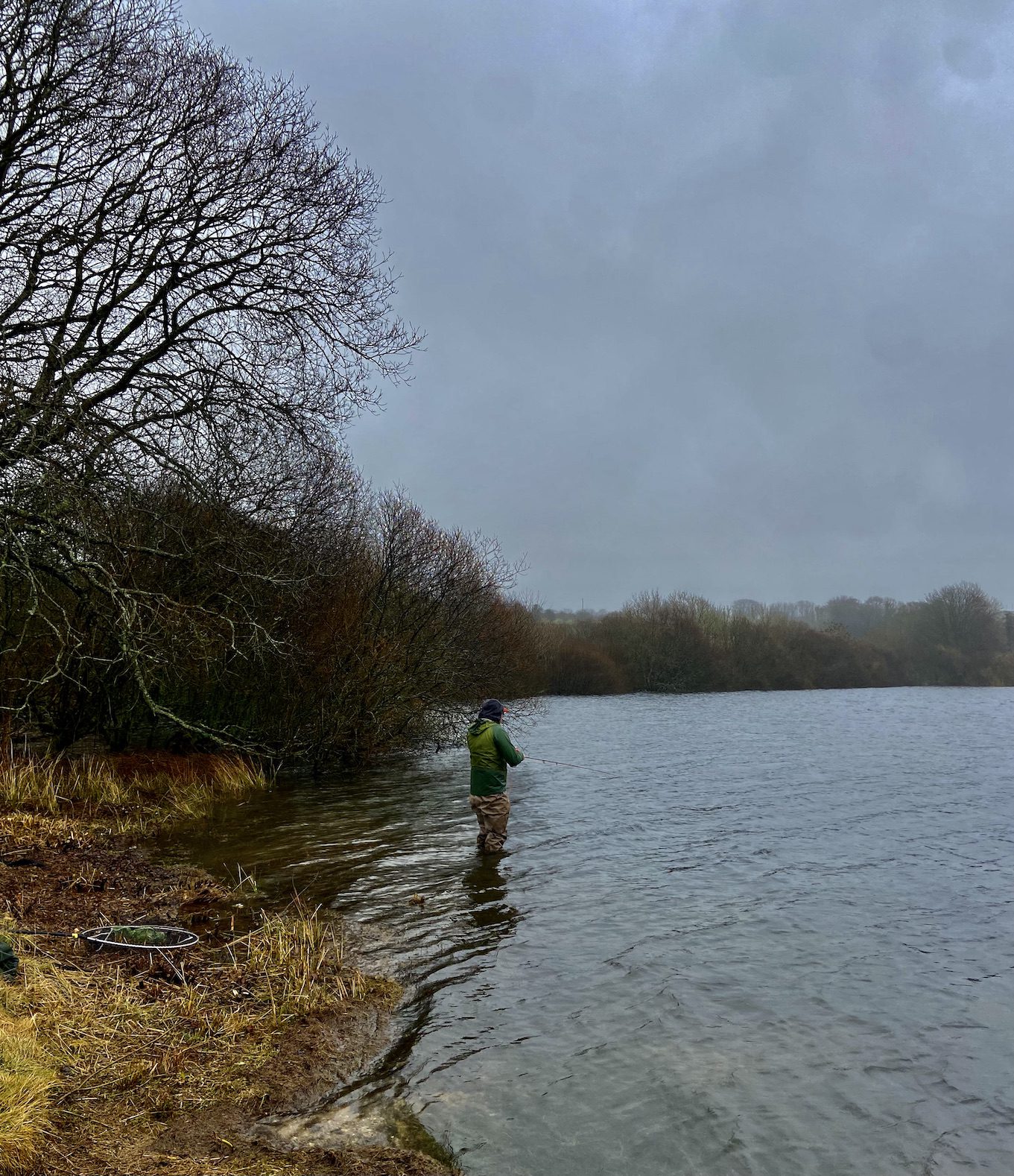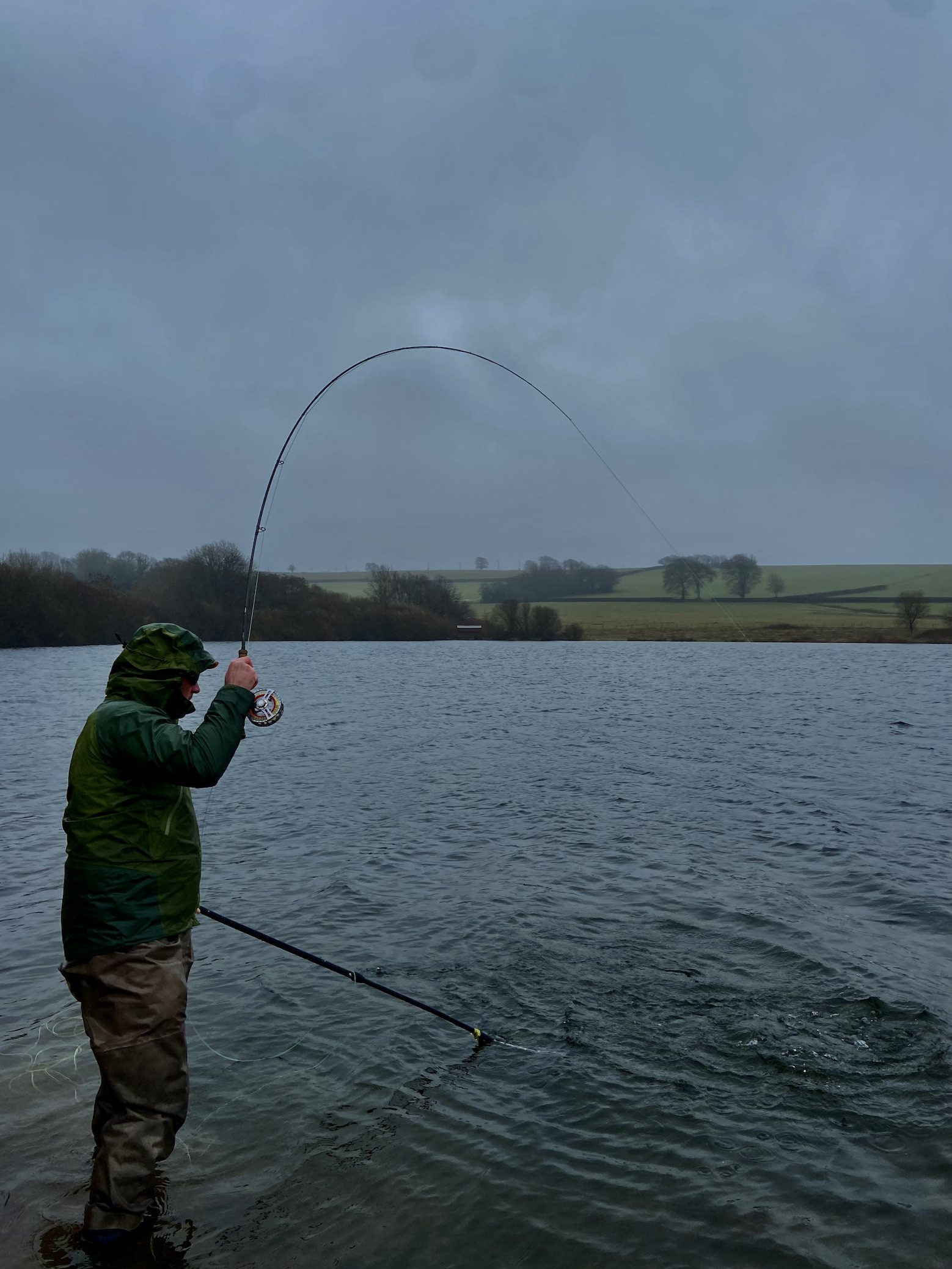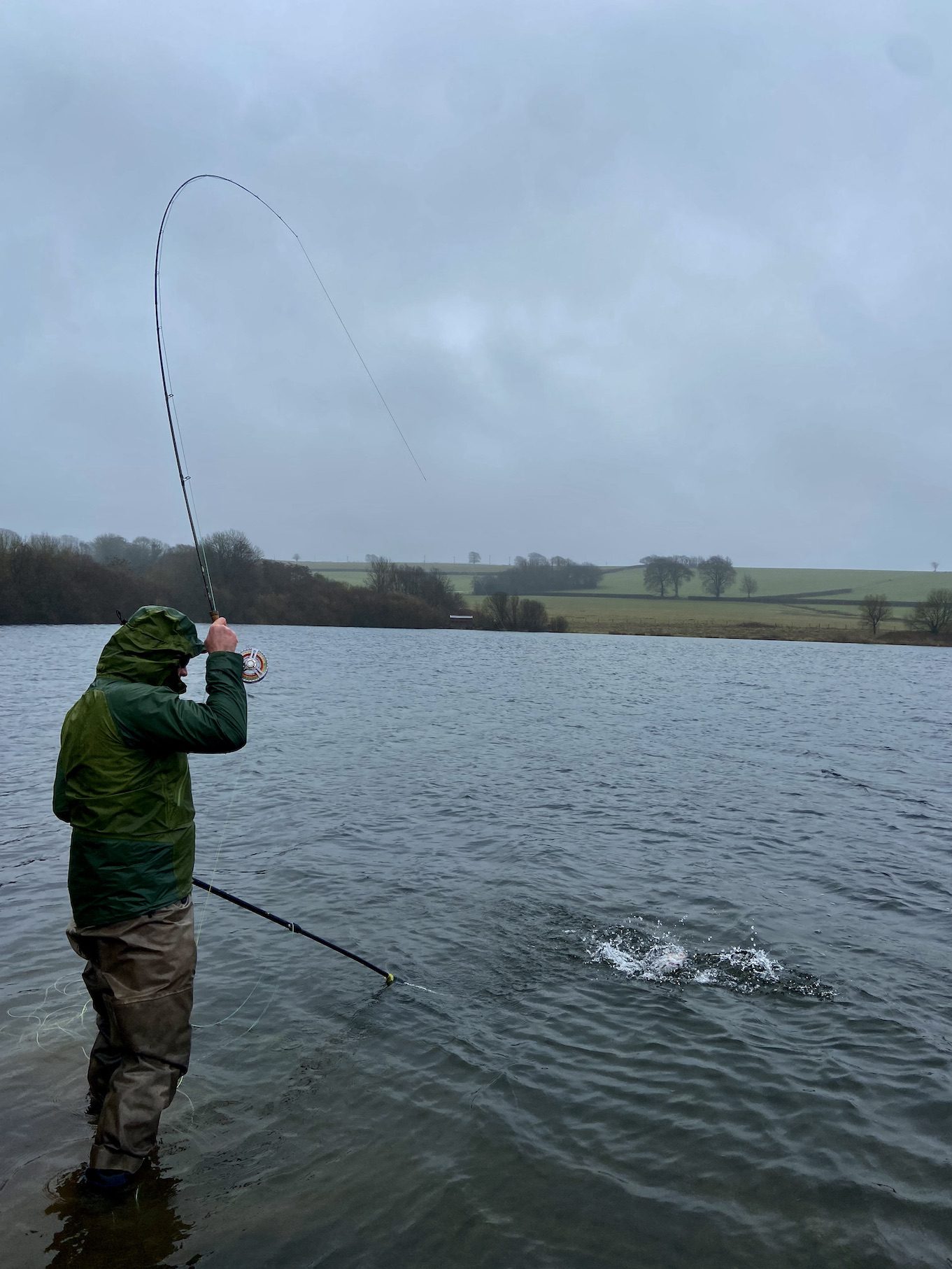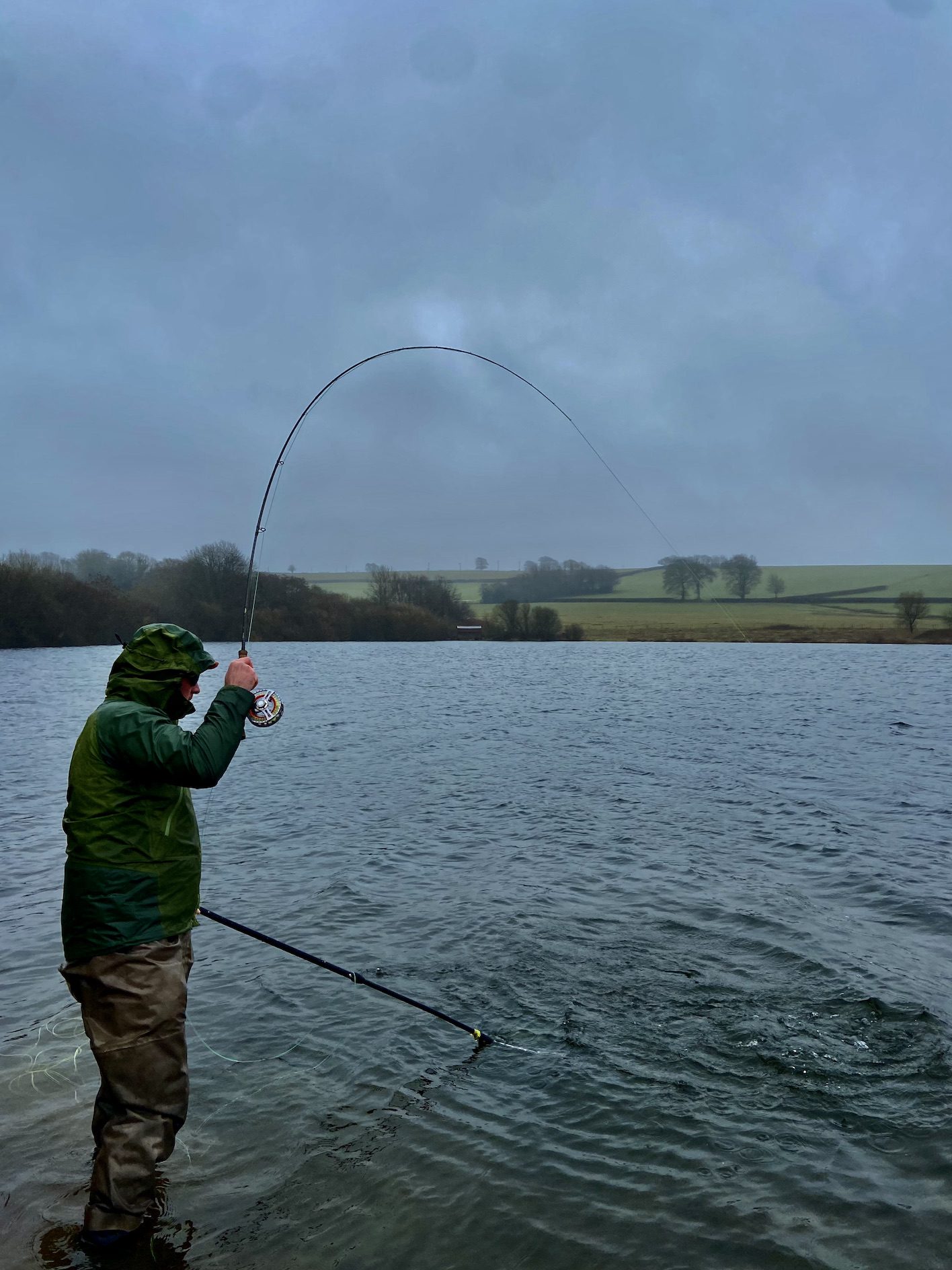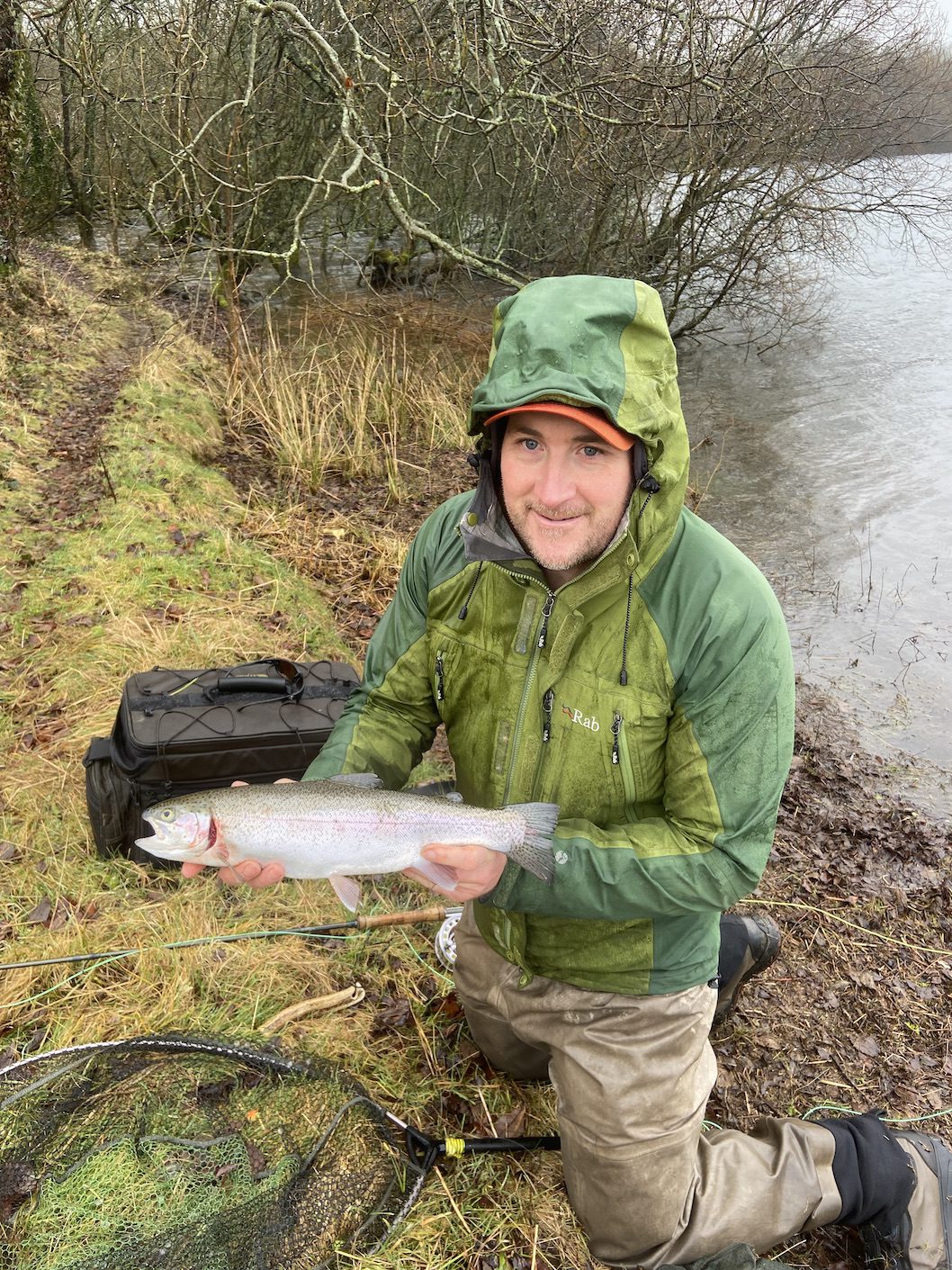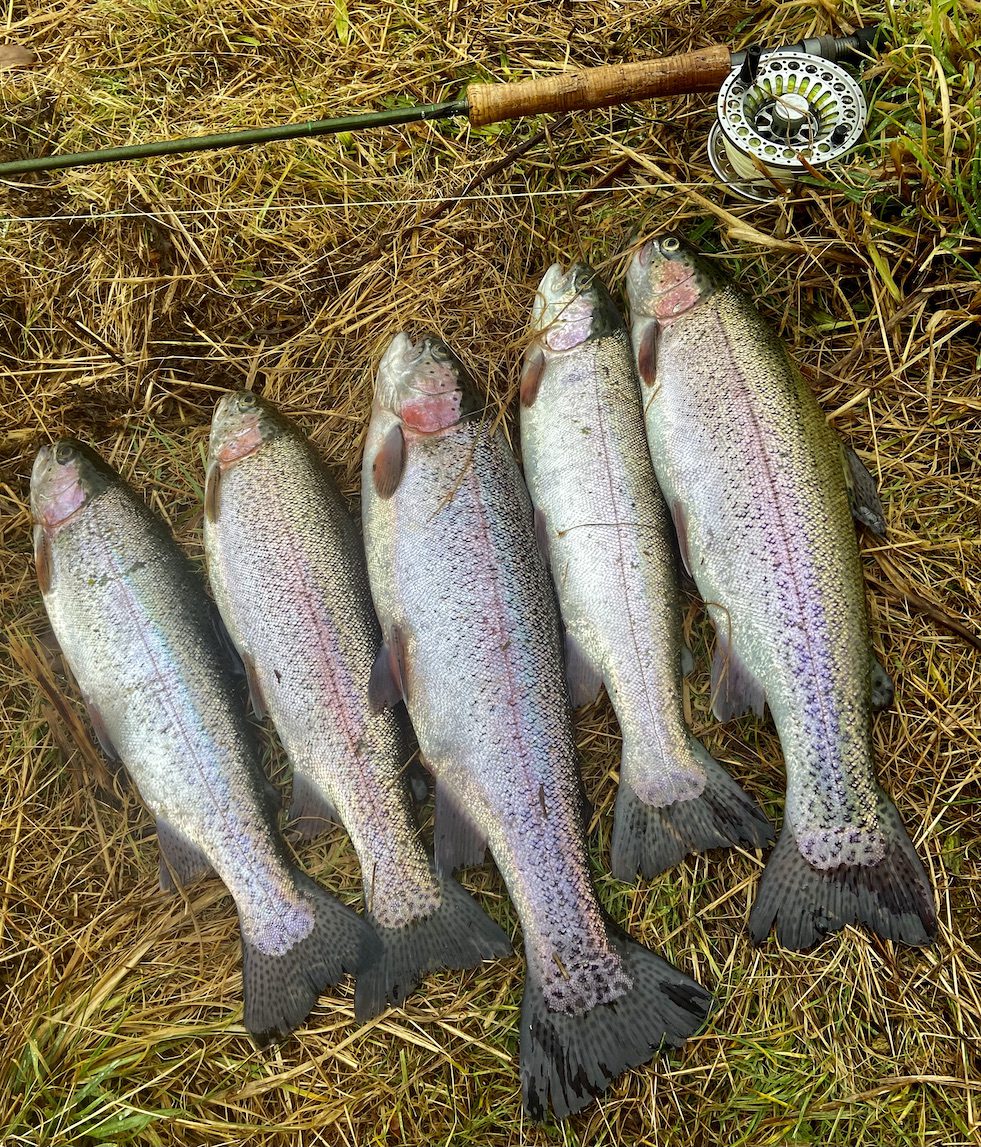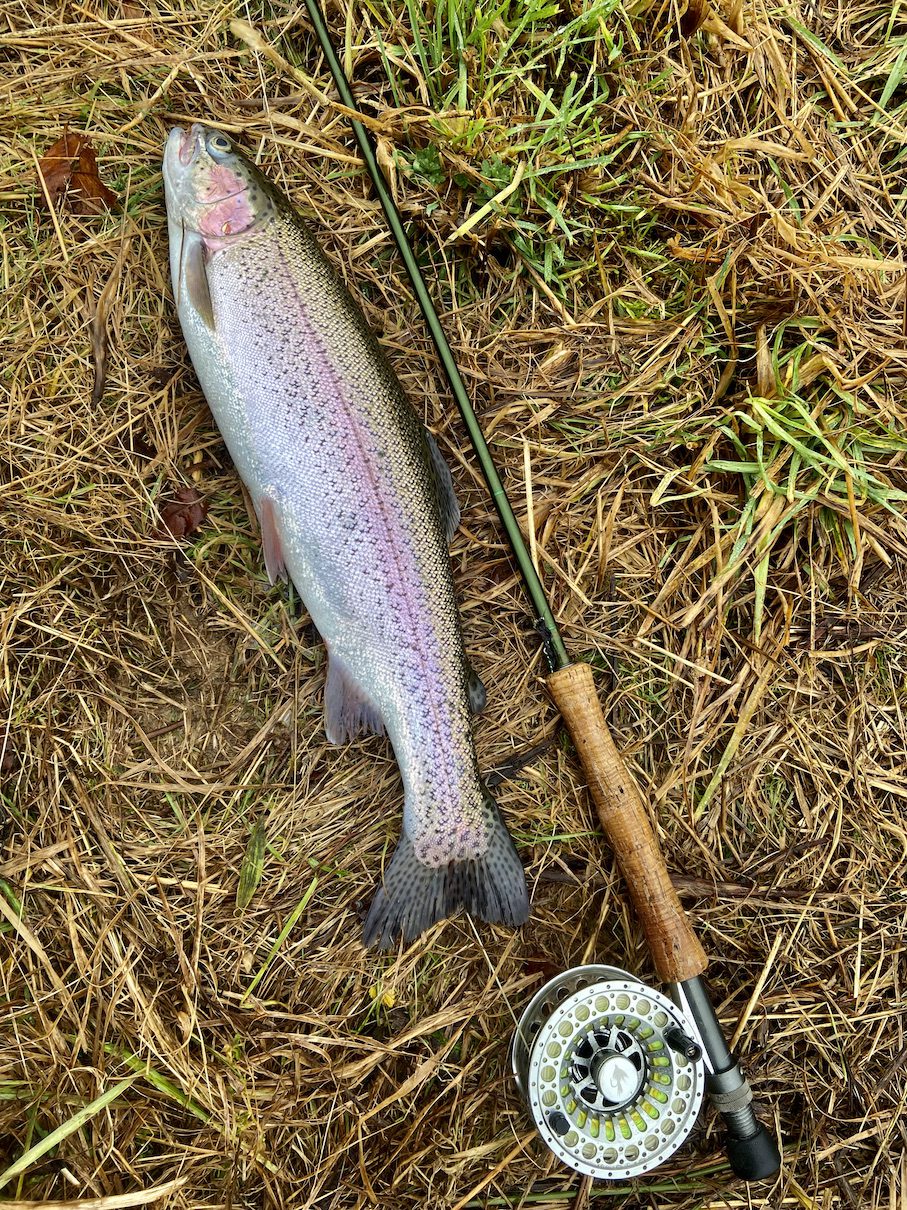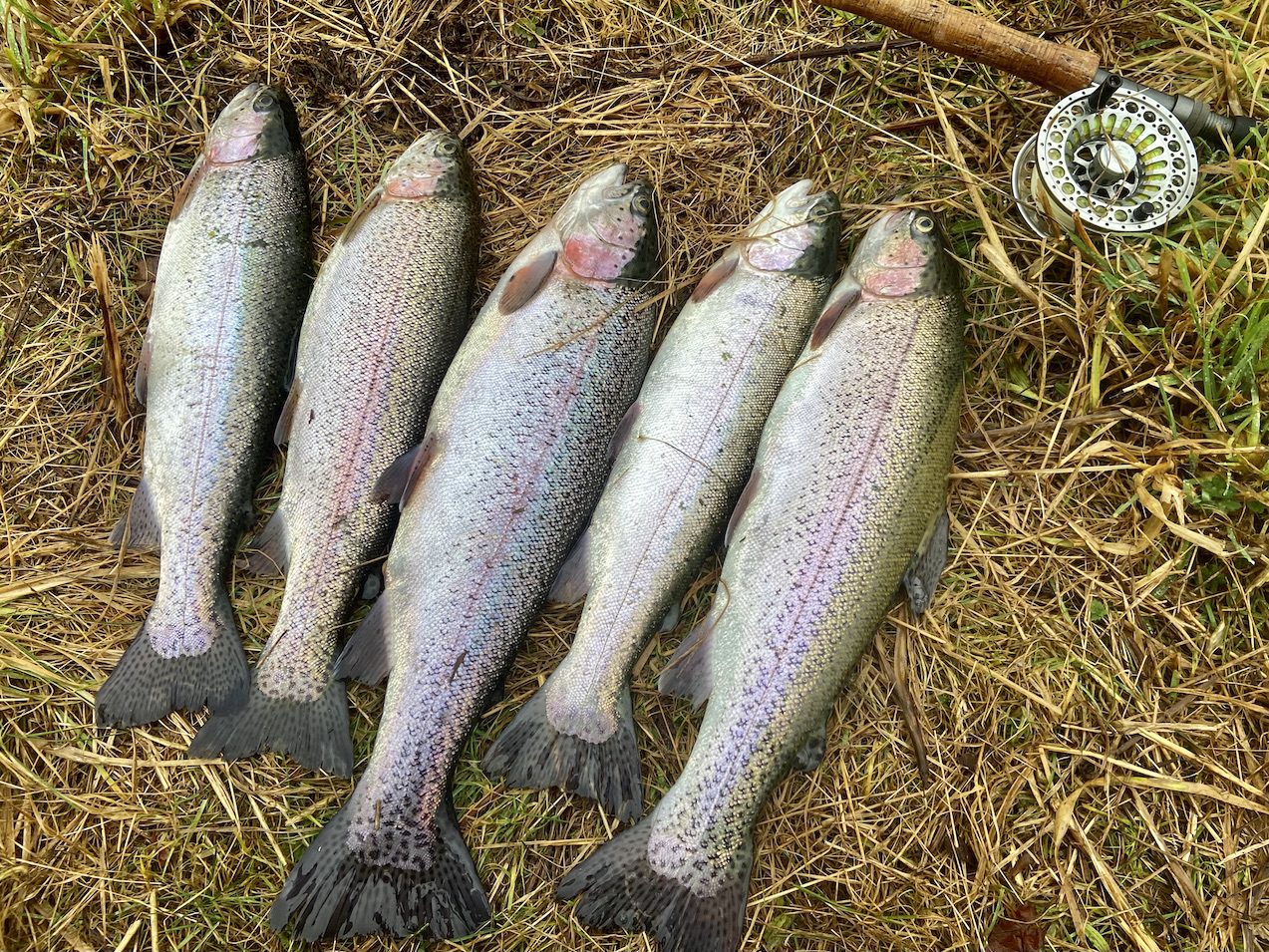Many thanks to Richard Wilson for sharing his latest musings on angling literature and the realities of early season excursions.
Sex, Drugs & A Perfect Snake Roll
Some of the finest fishing literature is drenched in sun-kissed hedonism and fuelled by drink, drugs, sex and fighting. So what am I doing wrong?

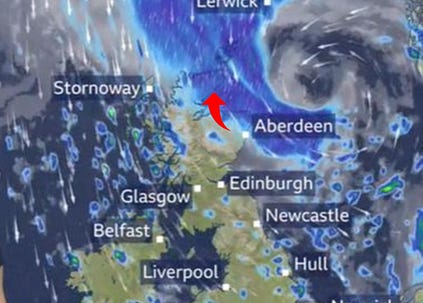
It’s early March and, at last, I’m on a real river. It’s the moment of transition out of my close-season daydreaming. A rude awakening.
Every year this re-entry induces a psychological shock as a churning ice flow crashes into my expectations. So why, after so many years of winter prepping, is this always a surprise?
Before we go chasing fish, please come back with me to my close-season habitat. My den is a place of comfort, clutter and a friendly armchair. There are plenty of fishing books, very few of which are of the ‘how-to’ genre. Real books offer tactile pages and vicarious riverbanks.
Meet the righteous stuff of my Dreamworld: From my armchair, I can prepare for the coming season with a dabble in Hemingway’s knuckled prose, sun-kissed marlin and drunken machismo. Surely (I hope) he would have been knocked senseless by Norman “A River Runs Through It” Maclean and his brawling brother.
And, from my playlist, what exactly did Louis Armstrong mean by his summery “Gone fishin’ – I’m real gone man”? Or how about John Gierach’s story of meeting a familiar face, knowing only that it was last seen “under the Haight-Ashbury sign” in a late ‘60s summer?
For more context, I could turn to flamboyant jazz maestro, author and fishing junkie George Melly. He was truly well gone, but back then the only snow in the jazz clubs went up your nose. And let’s not forget the Great Gonzo angler-provocateur Hunter S Thompson whose sun-soaked drink and drug-crazed fishing exploits would have been fatal for most of us.
It’s heady stuff and, back in my den, I’m left wondering if self-medicating my lengthening midlife crisis counts as exuberant hedonism. On reflection, I decide probably not – but live in hope.
Many of the best fishing books live hard and fast, mixing the profound with the earthily profane. And nowhere do these two primal urges collide with more urgency than in the timeless prose and jaw-dropping life story of Negley Farson, author of Going Fishing. He was the real deal; a buccaneering, hard-drinking, hard-living, hard-fishing all-American writer who really did drink Hemingway under the table. And, whisper it quietly, isn’t Hemingway’s branding looking a bit past its sell-by date? Just sayin’.
No list could be complete without the soothing influence of Harry Plunket Greene. He was light on drink, drugs and fighting, even though he had a direct family link to Mary Quant without whom the psychedelic 60s would have been beige. His utterly charming 1924 book Where Bright Waters Meet is a page-turning delight about favourite beats, some of which I know intimately. He transports me to a time when it’s always June and the evening rise is dappled perfection.
That was then. Now I’m in northeast Scotland where, thanks to my winter book-worming, I have arrived primed to hit the water with rod loaded and dander rampant (that’s a Scottish heraldry thing).
This is the Oykel, a river I have long wanted to fish – but harsh reality is not quite the image I’ve spent the winter incubating. Spring, it isn’t. The baby rabbits, lambs, migratory birds and the damsels a-dancing are nowhere to be seen. It’s immediately clear that my cock-sure arrival is hopelessly misjudged.
Today the river is vengeful and the gillie is insanely lightly dressed. I’m wearing every layer I have because the wind, rain, hail and even the top 6 inches of the foam-flecked water are all travelling upstream. Everything is flotsam except the salmon, of whom there is no sign – and who can blame them? They’re all tucked up warm, comfortable and far out at sea.
It gets worse. I am on the right bank fishing down and the only cast that might work doesn’t. So another cack-handed Snap T variant disappears upstream, a flailing line spun from angry eels. And I’m still in mid ‘Snap’. I may remove the fly for my own safety and I’m starting to hallucinate with cold.
My face is blue, my hands are rigid and soon I’ll be the late departed and shuffling off to meet Isaac Walton. I think I see my fishing partner Charles float past, face down. Perhaps he’s a log. Whichever, I’m not going in to retrieve his corpse in this. Hopefully, he left his Winston rod on the bank. I can’t yet find the words I’ll use to tell his widow I’ve retrieved only the Winston, but I have 5 more days solo fishing to work that out – and enjoy the rod.
This, emphatically, is not the armchair fishing I have perfected over winter. What was I thinking of?
It’s not just the books that have led me astray. I’ve also followed a lackadaisical close-season training routine. I have occasionally sat in my armchair making perfect, minimalist Snake Rolls and Double Speys with, machismo alert, just my bare hands. Anyone who knows the mesmeric rhythm of Spey casting intuitively does this: Lift, roll and whoosh. Now try a Snake Roll. Always a perfect cast. We all do this boastful in the bar after fishing and in private as an angle-maniac’s onanism. Even when refined to the most compact of movements my imaginary rod loads and fires perfectly every time, if a little late in life.
It’s self-delusion of course and, worse, makes me look like an idiot in the eyes of my family. And, damn the hubris, my indoor training has now dumped me bereft of talent in the maw of a blizzard.
I retreat to the fishing hut and a mug of chicken soup, mercifully hot from the flask. Disappointingly, Charles is alive and already in here. So I won’t be getting his Winston, yet. But he hasn’t seen or caught anything either, which is good. Fishing is a brutal zero-sum game. My gain is your loss, and vice versa.
And where’s the gillie? Have we been abandoned? We wonder if a fishing party has ever been found, days later, frozen to death in a fishing hut with snow drifting into the eves. Is there any nutritional value in cork? At that moment the door opens: “Sorry lads, had to move the pickup. How’s it going?” He looks pink, smug and warm. We exchange suspicious glances.
So whose fault is it that I always arrive bankside with plans-akimbo? Why, I wail into the gale, why didn’t someone tell me? Well, I already know the answer to that and can name names. I have a rogue’s gallery of culpable bastards whose fishing worlds promise warm, cosy waters stuffed with hard-fighting fish.
So here’s the shortlist: Hunter S Thompson for dazzling my teenage years with aspirational derangement. Plunket Greene for living the dream at the expense of his marriage (no, I can’t). Farson for showing that there’s no such thing as excess provided writing, fishing and drinking all travel together. The siren Taw Fishing Club for the sexiest fishing website ever. Simon Gawesworth for making Spey casting look ridiculously easy. The Beatles for staying at a favourite hotel, The Edgewater in Seattle, and fishing from their bedroom windows. And Led Zeppelin, who went one better and had a live fish in their Edgewater suite. Although what they did with it is not entirely wholesome and their drug-fuelled orgy might still, even now, have legal repercussions. Proper rock and roll fishing. So why wasn’t I invited? All bastards.
I could go on. There are many, many more and you may have your own to add (name some; it’s cathartic). In fishing, like politics and childhood, someone else is always to blame.
Finally, I would urge you to heed my favourite definition of fishing: “Getting away from everyone for a few hours to talk about stupid things and act like you’re catching fish.”
So next year I should spend February and March warm and cosy in my den reading stupid things and acting like I’m catching fish. So: Lift, roll and whoosh – then mend and … strike!
But I won’t: How else will I get the Winston?
A print version of this essay can be found in the March edition of the excellent Fly Culture Magazine. For the online North American take, please try this: The Hatch Magazine
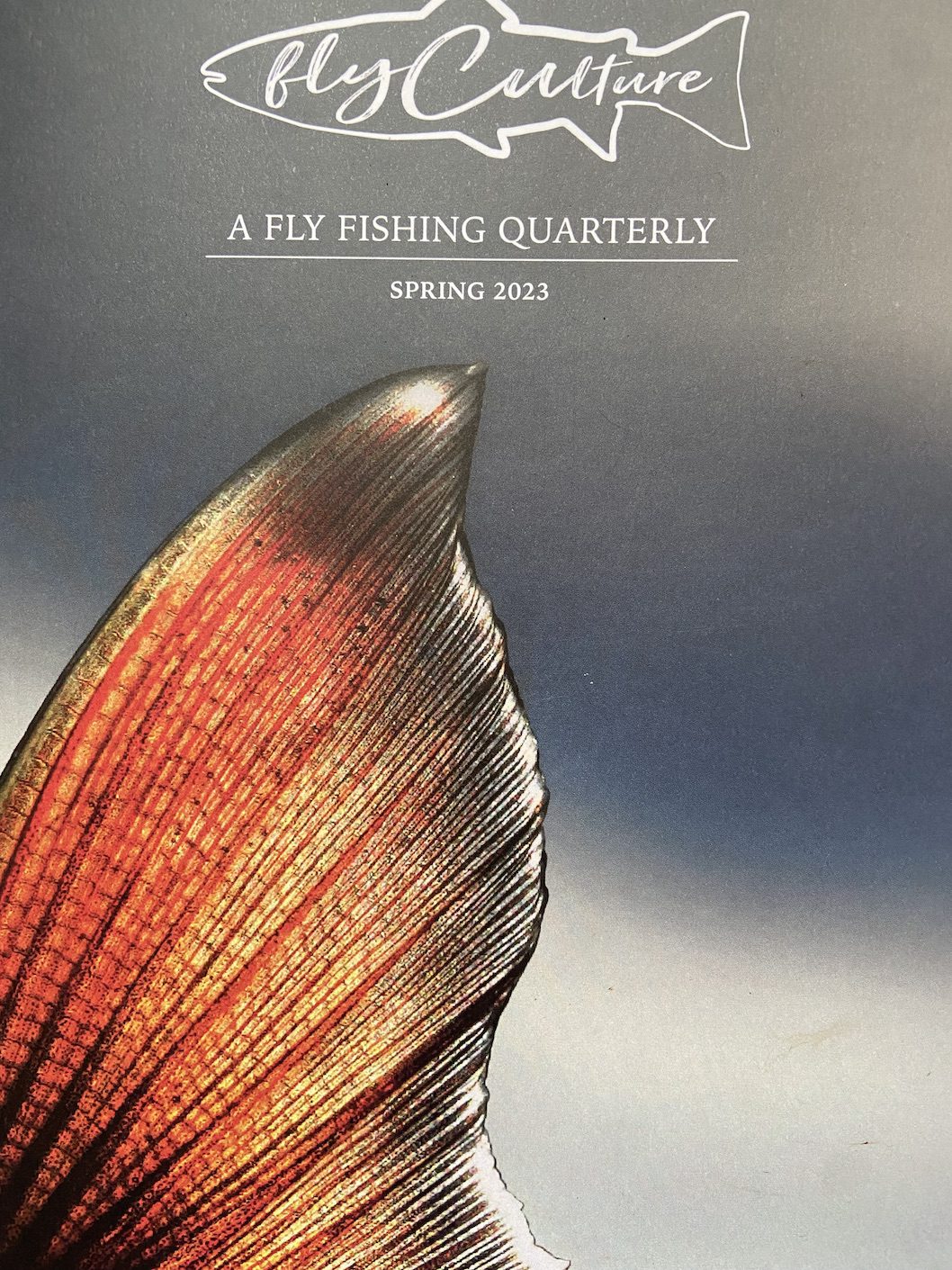

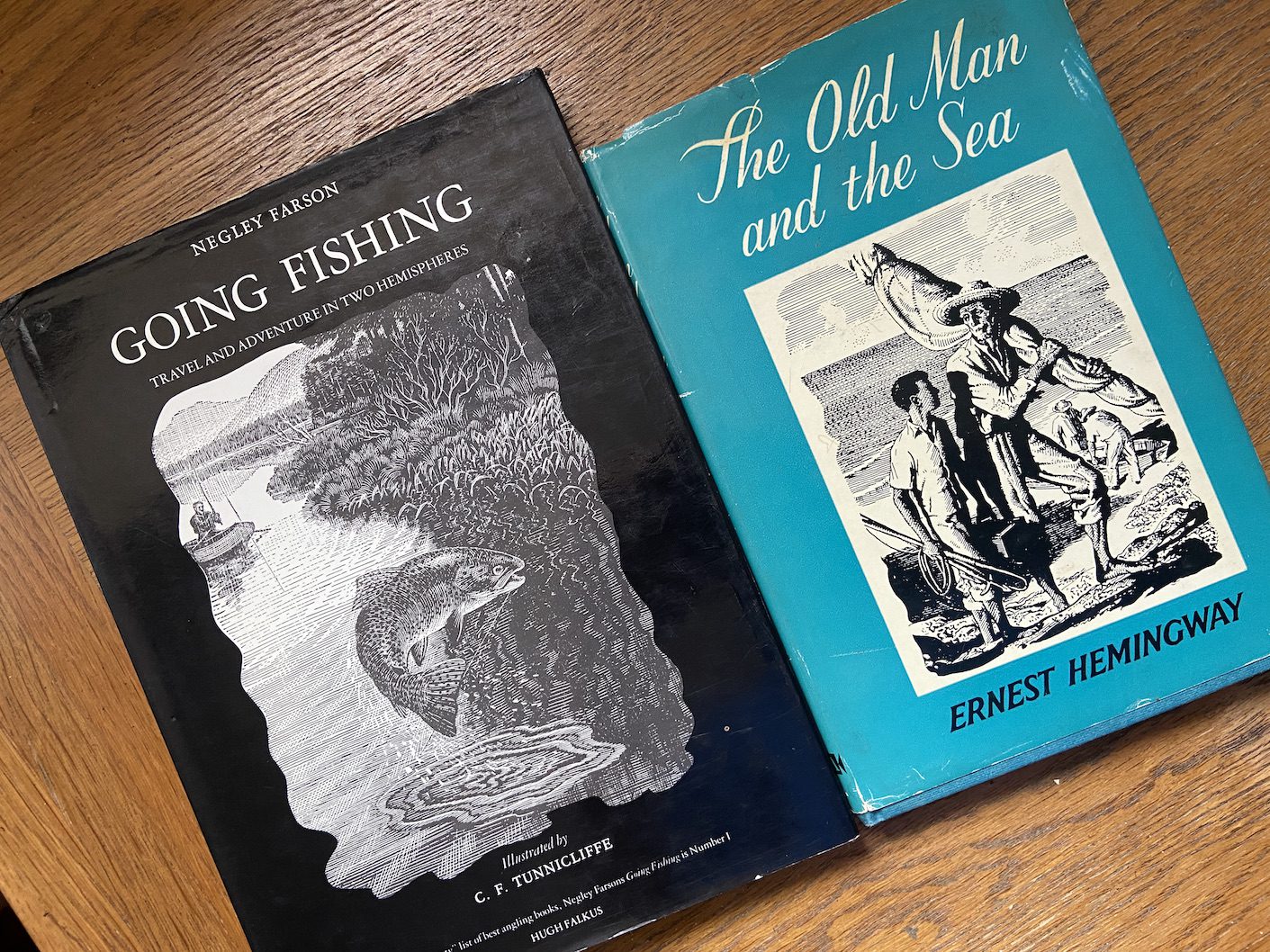

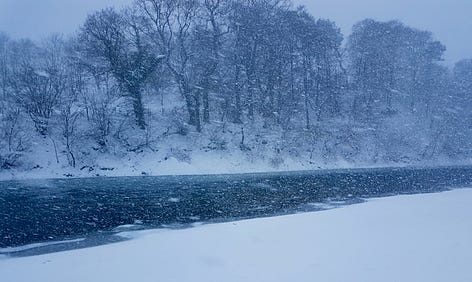
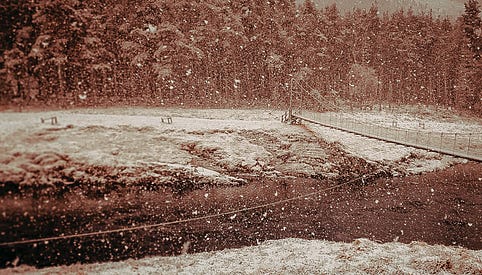
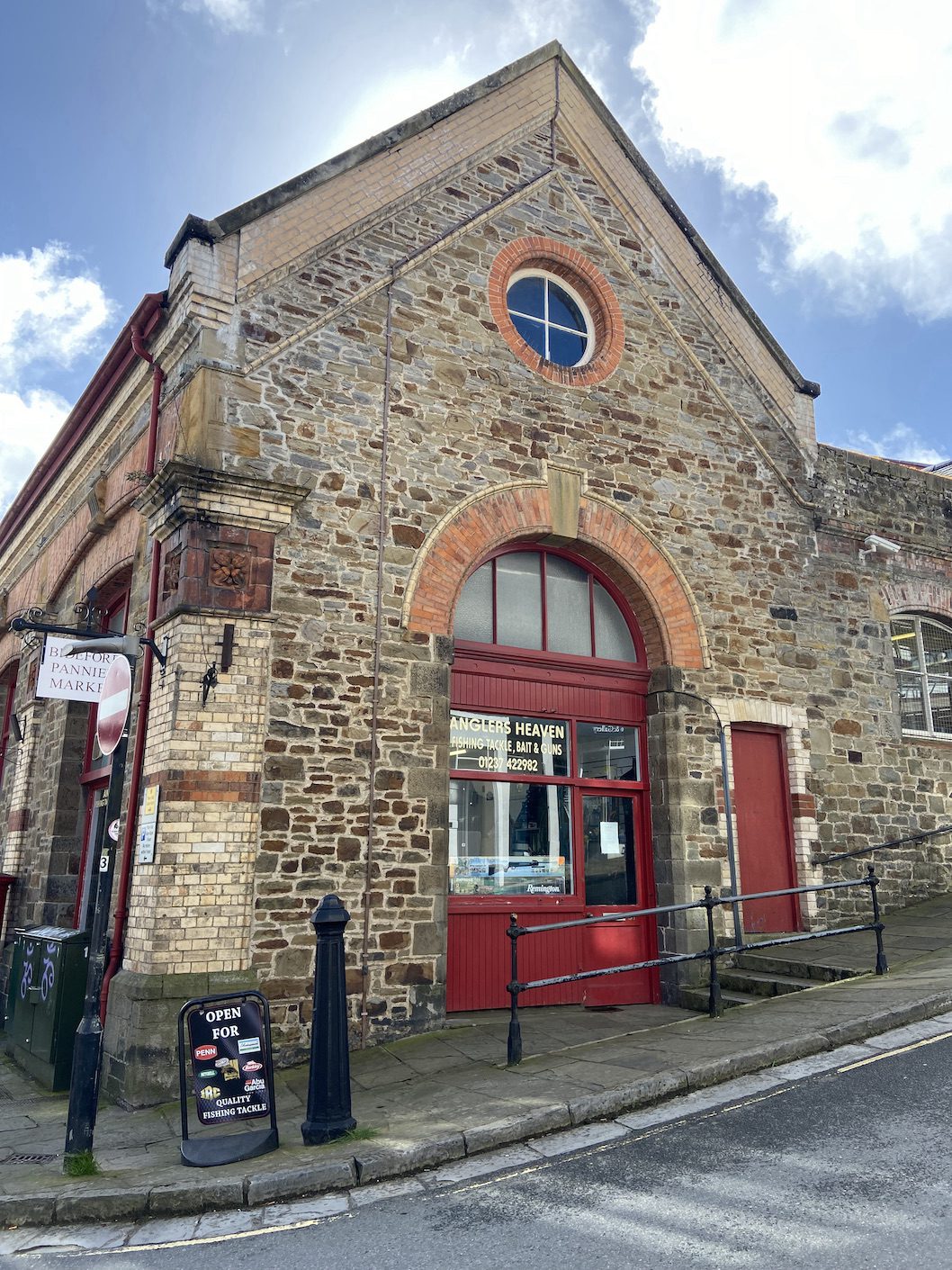

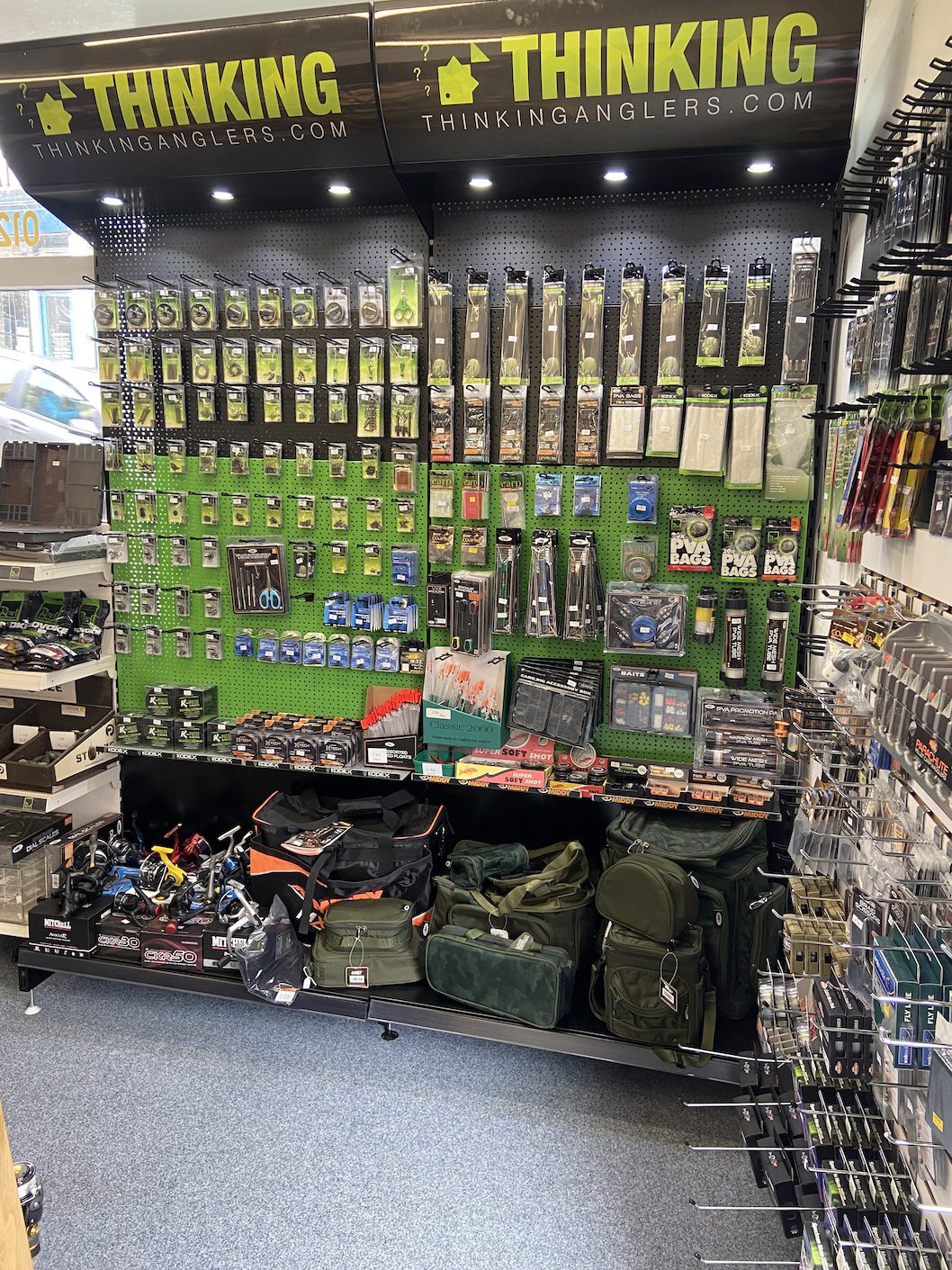
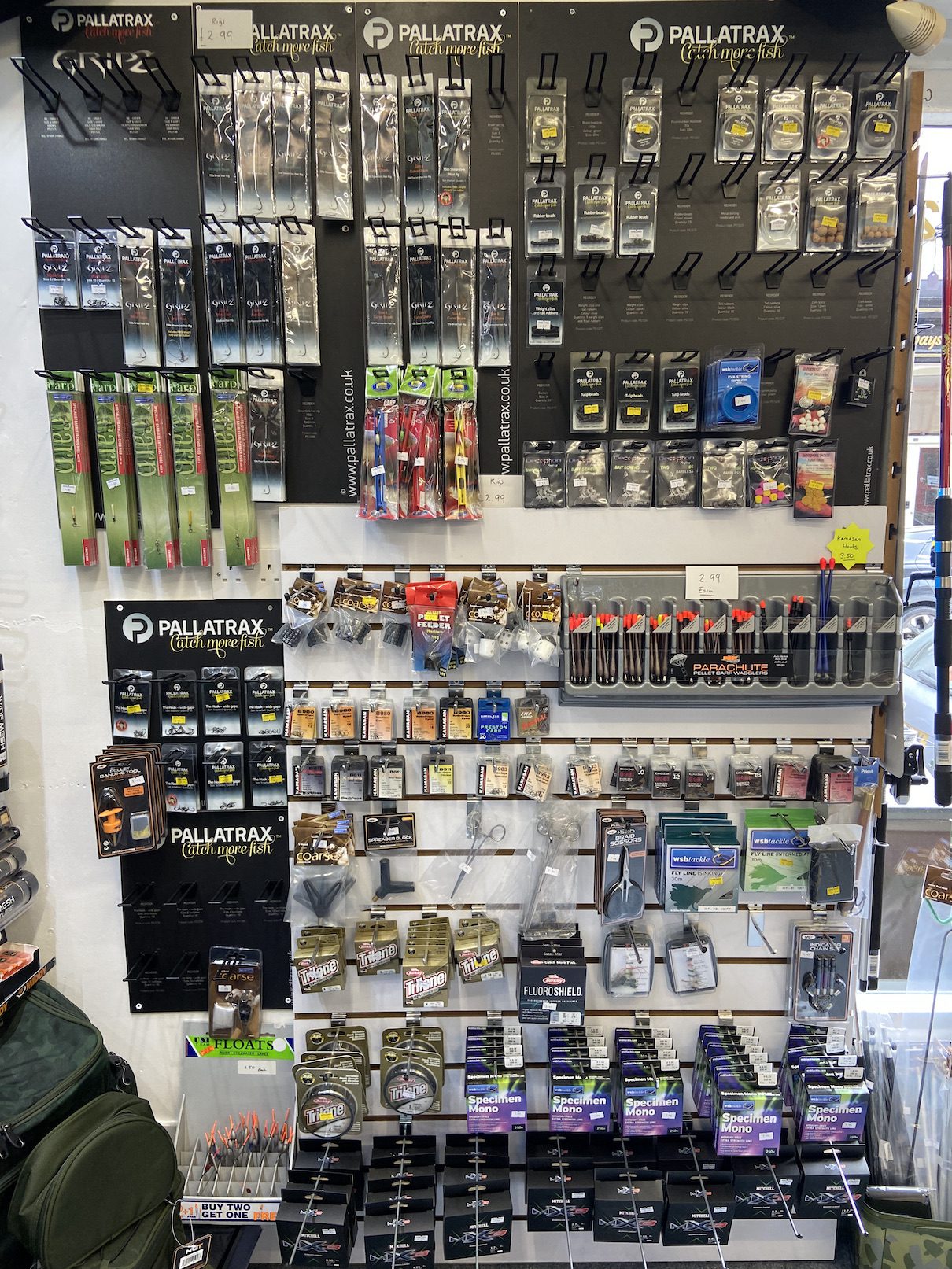
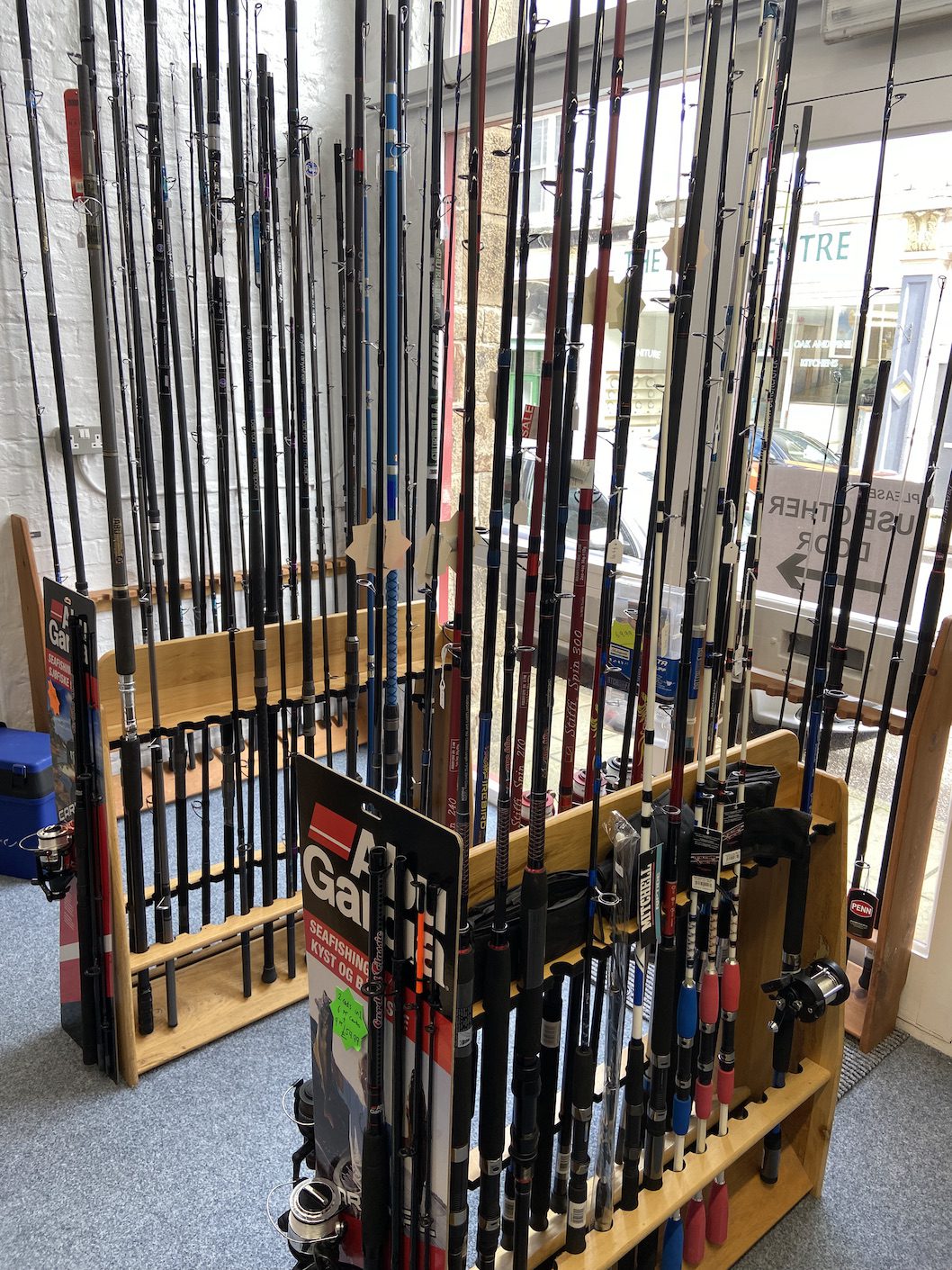
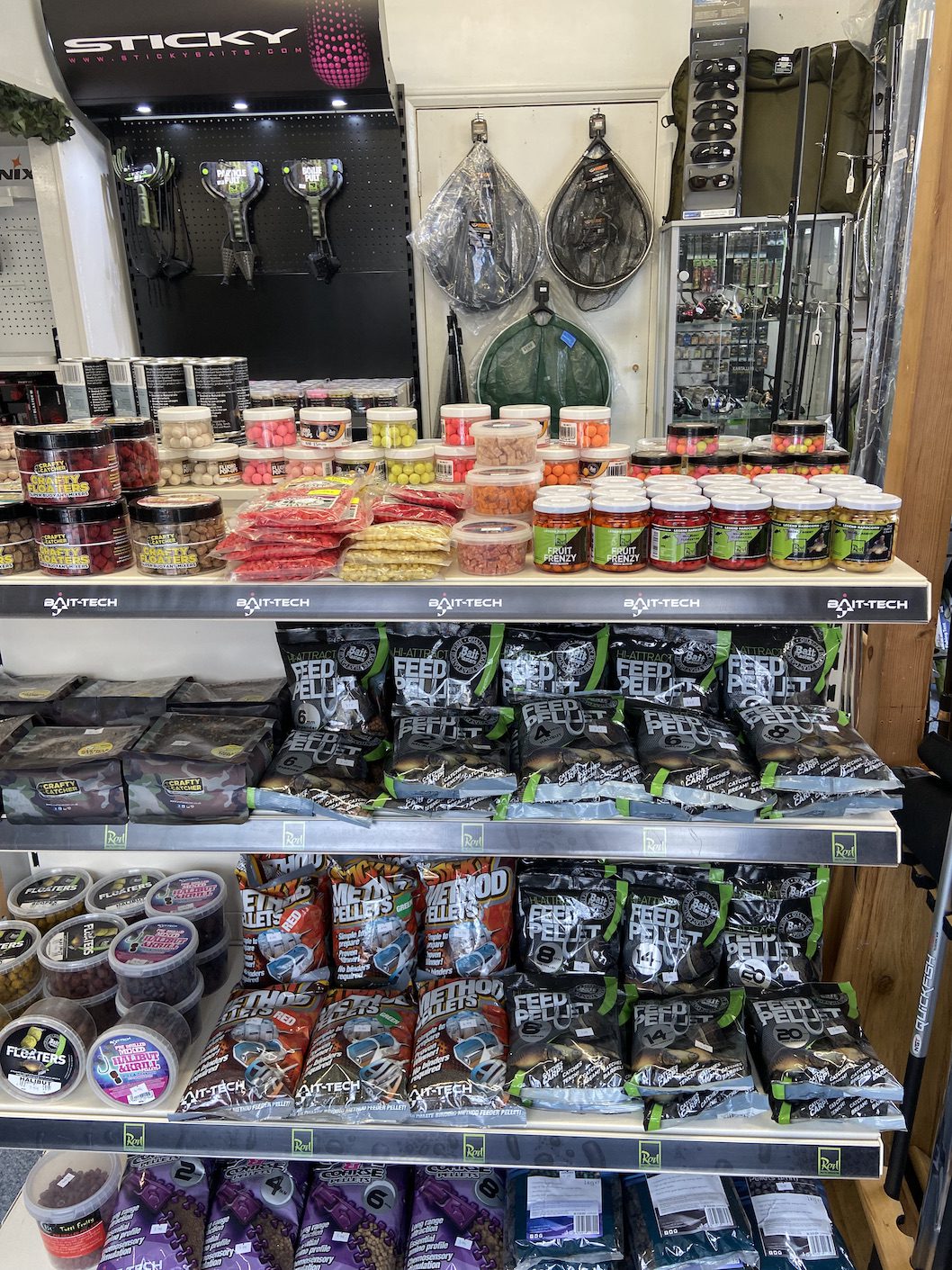

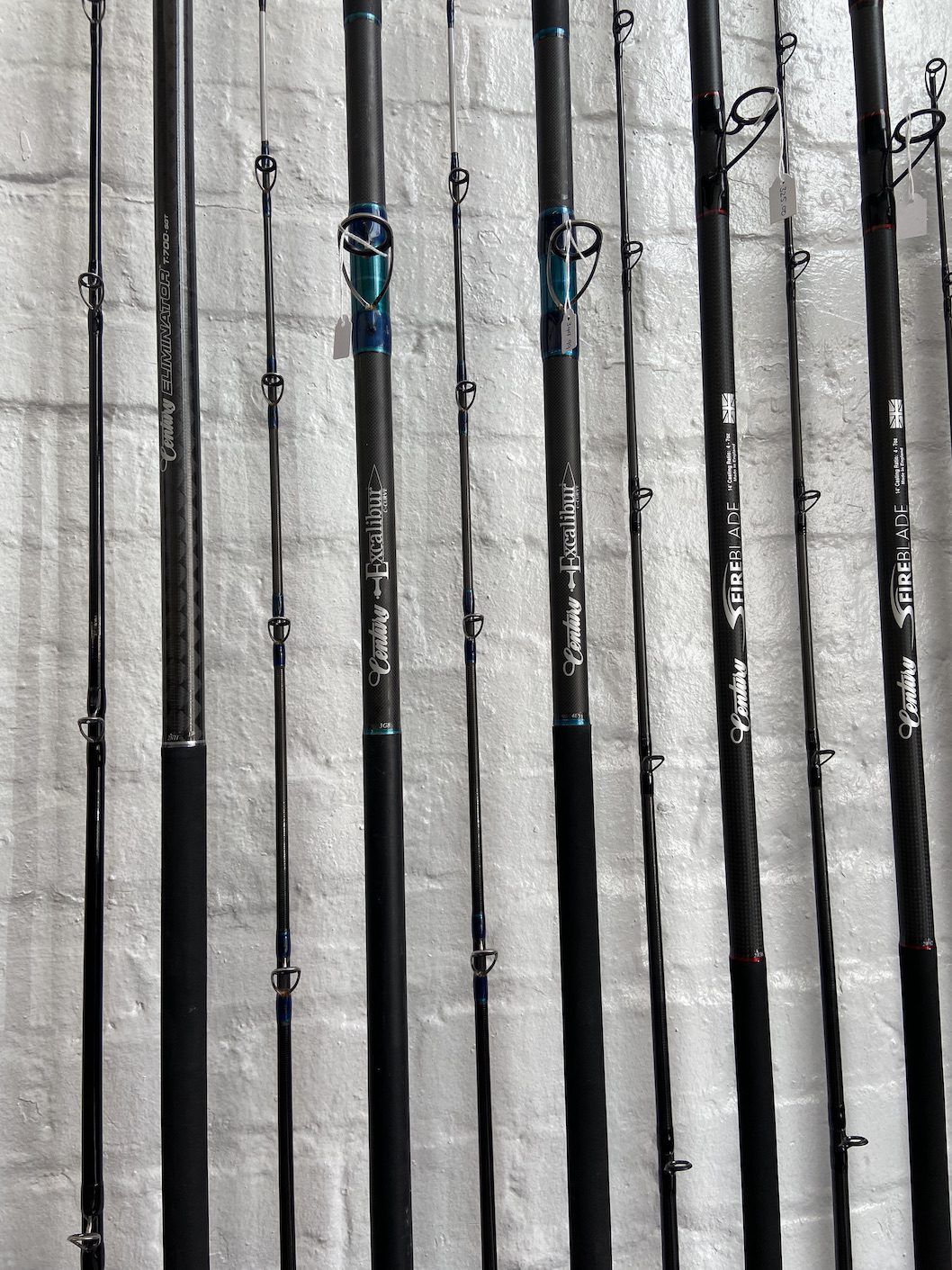

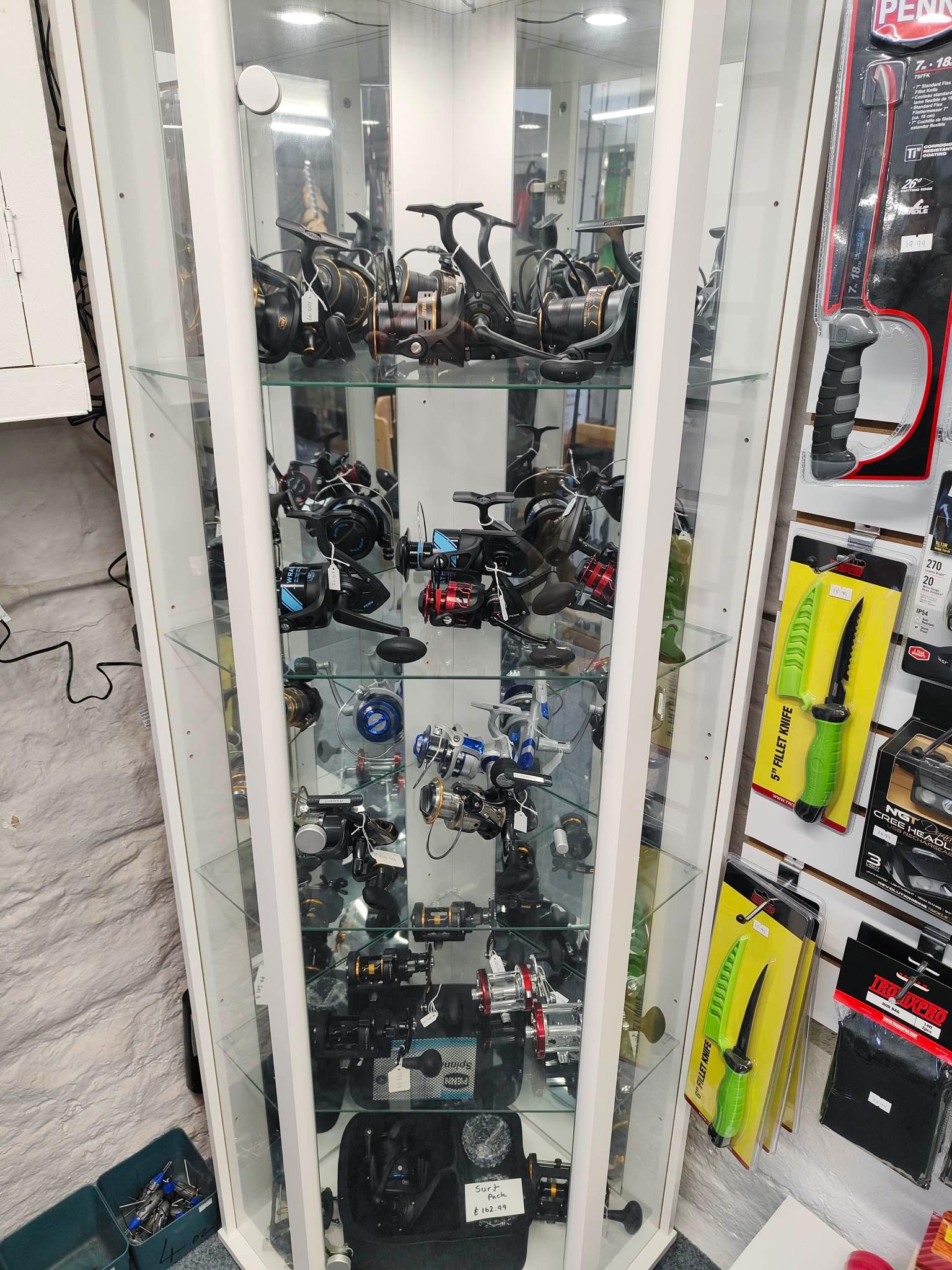




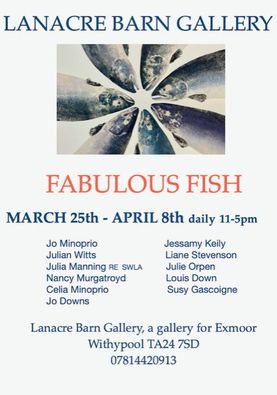
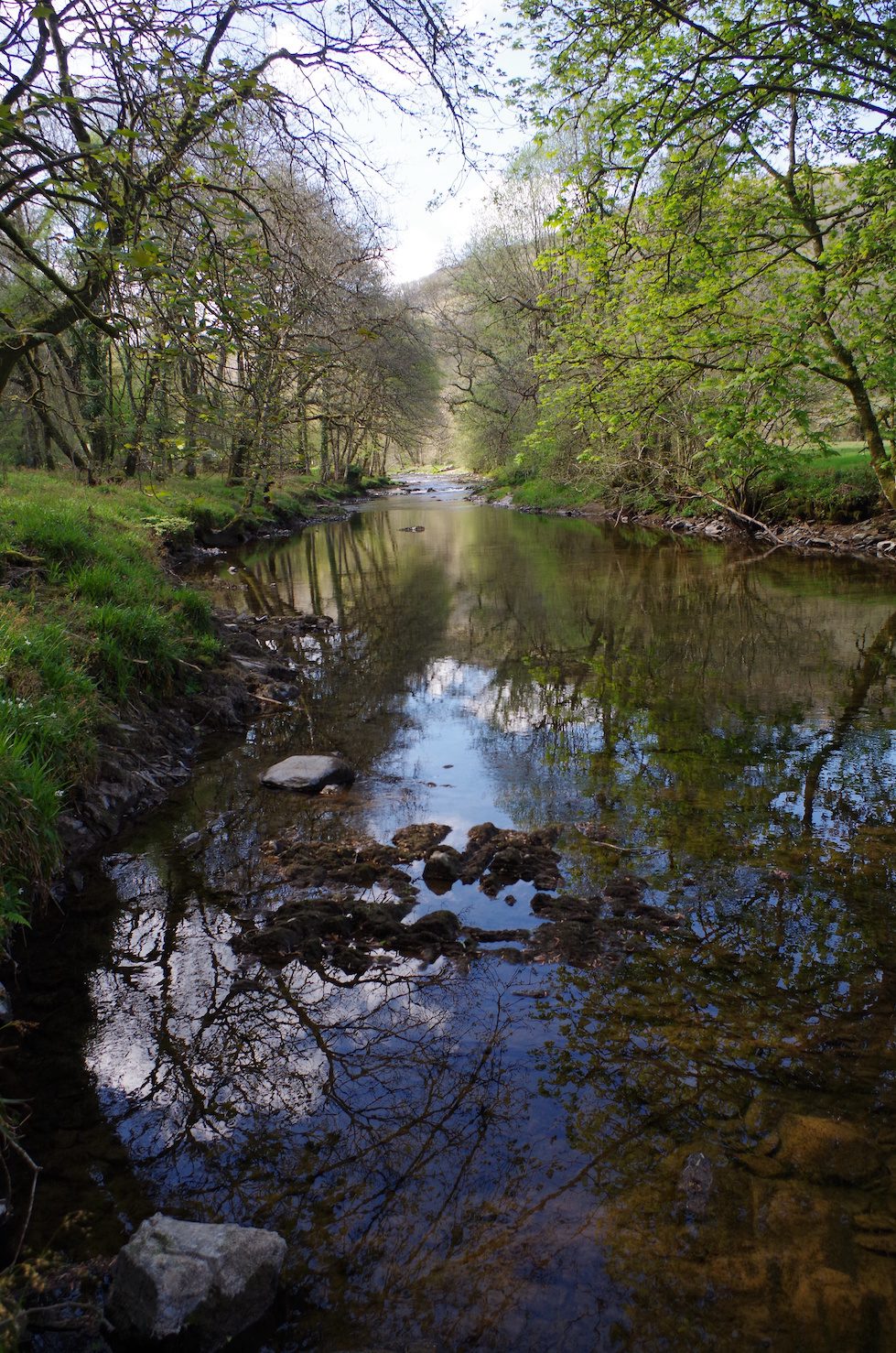

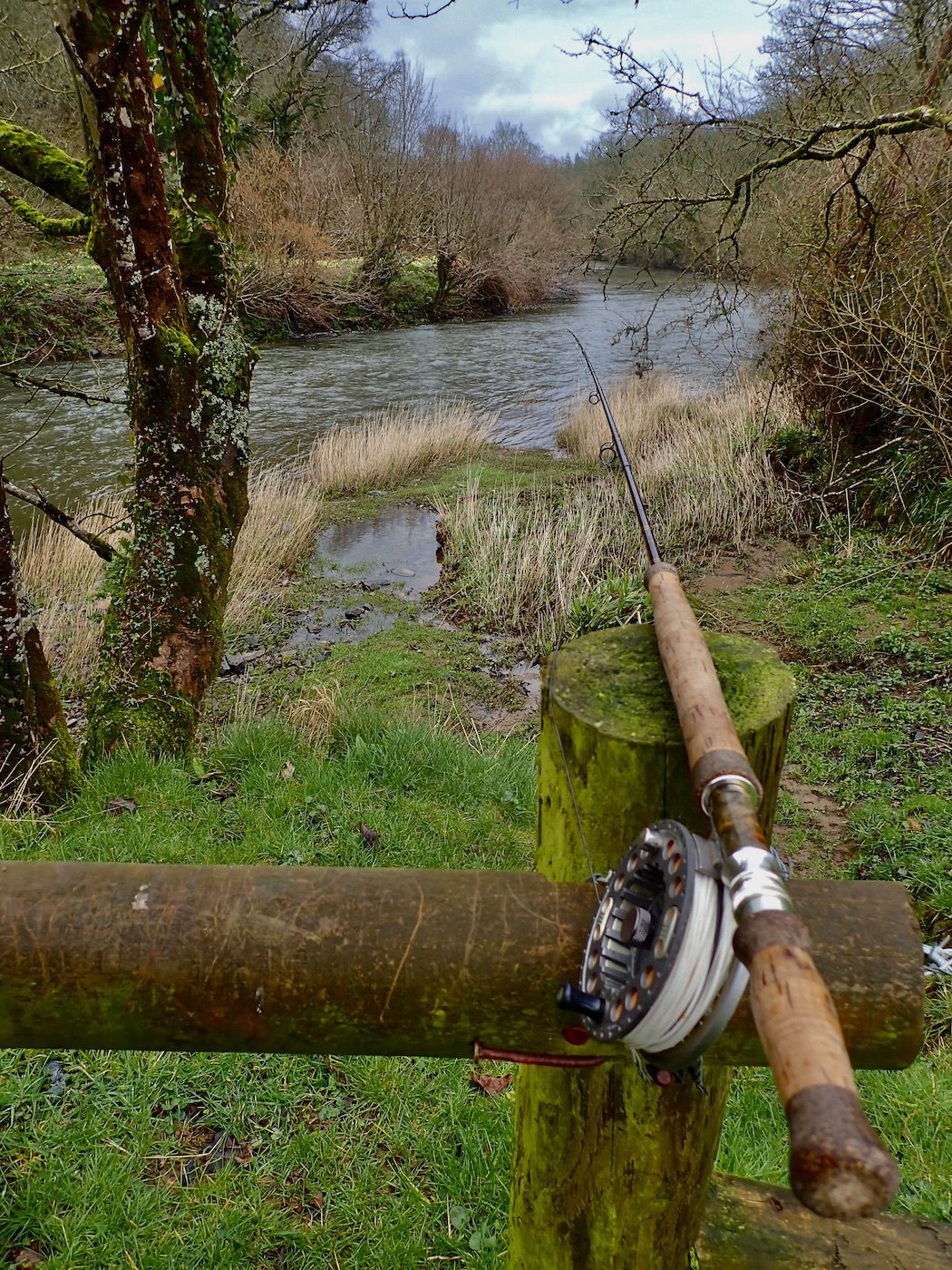 Hard to believe that three weeks of the 2023 salmon season have passed already. The first few days of the season saw rivers running low and clear with numerous kelt’s tempted by anglers fishing the lower Taw. There were rumoured to be a couple of fresh springers tempted but I have not actually seen any pictures of such fish.
Hard to believe that three weeks of the 2023 salmon season have passed already. The first few days of the season saw rivers running low and clear with numerous kelt’s tempted by anglers fishing the lower Taw. There were rumoured to be a couple of fresh springers tempted but I have not actually seen any pictures of such fish.